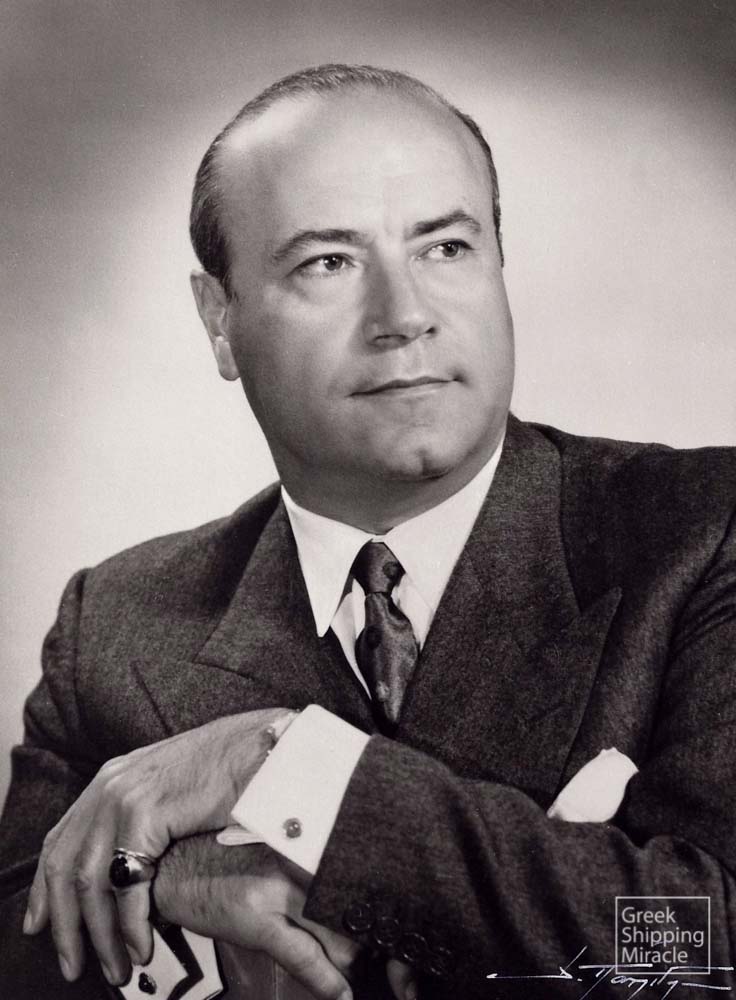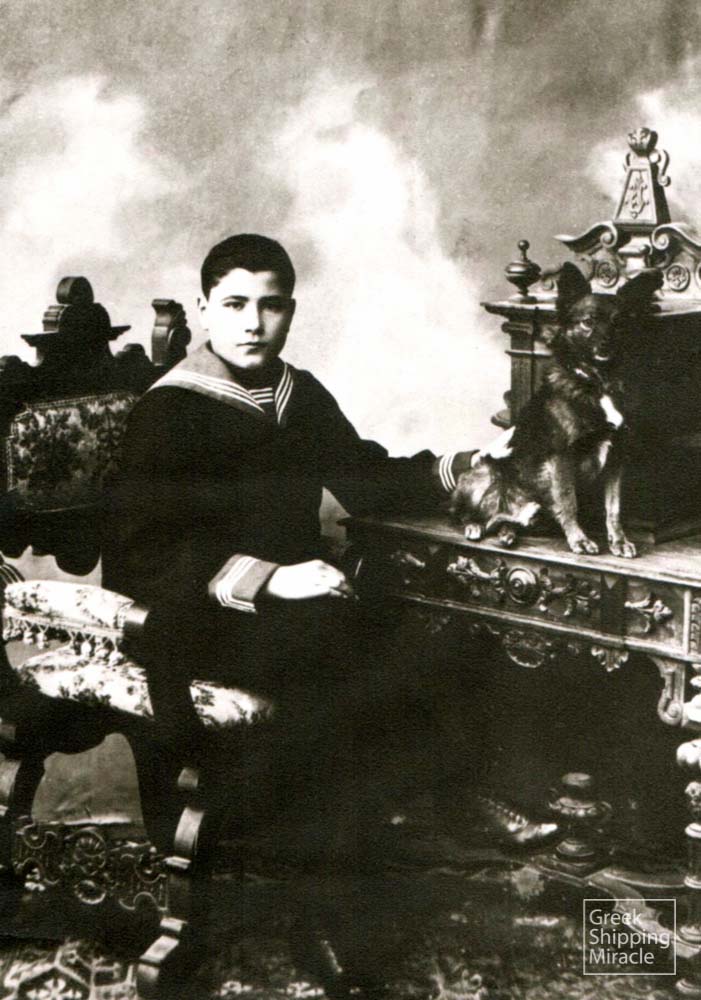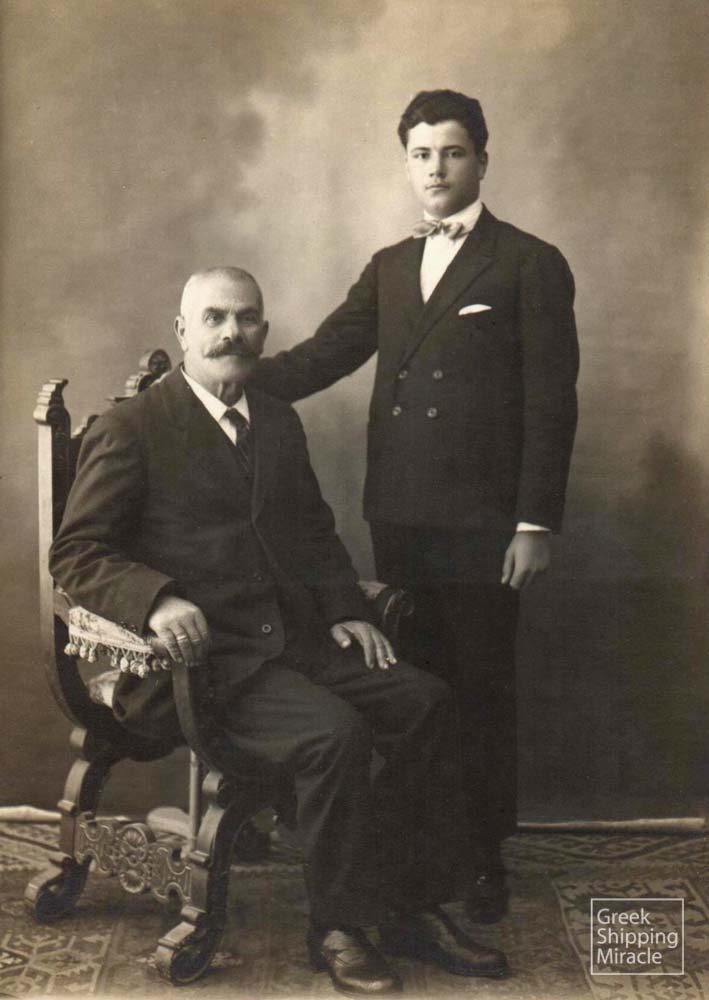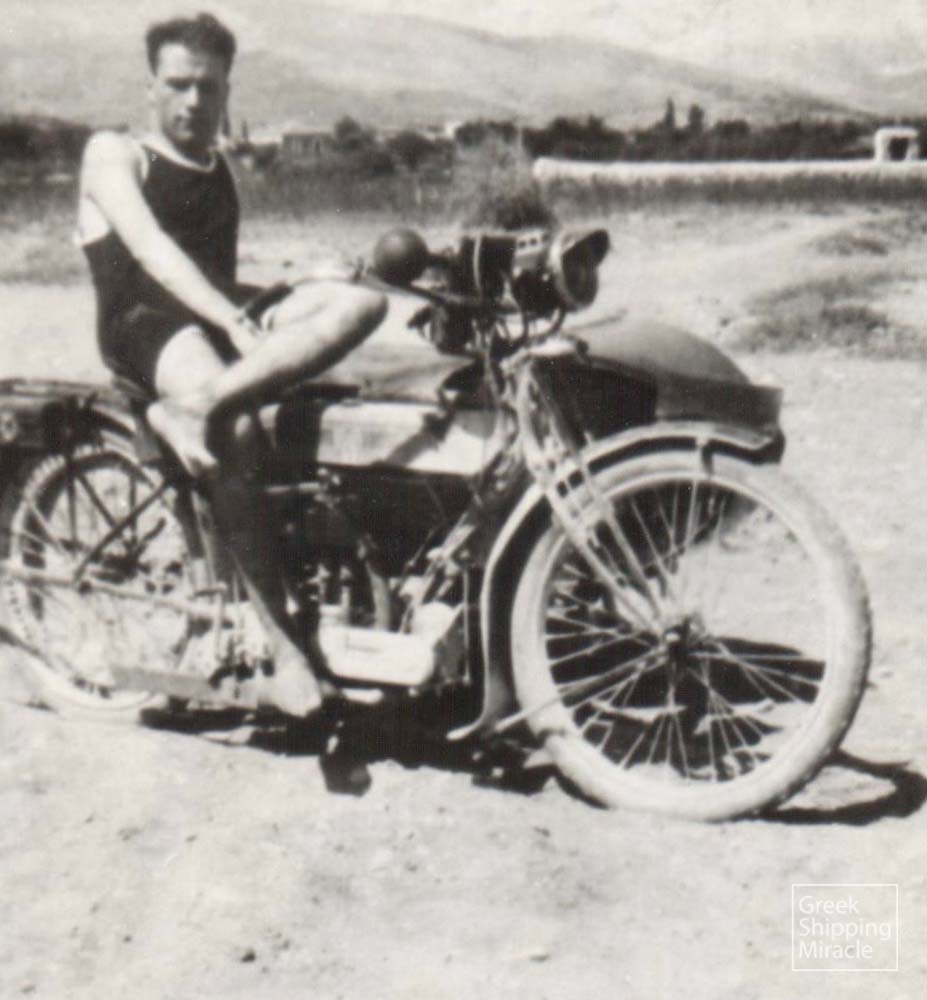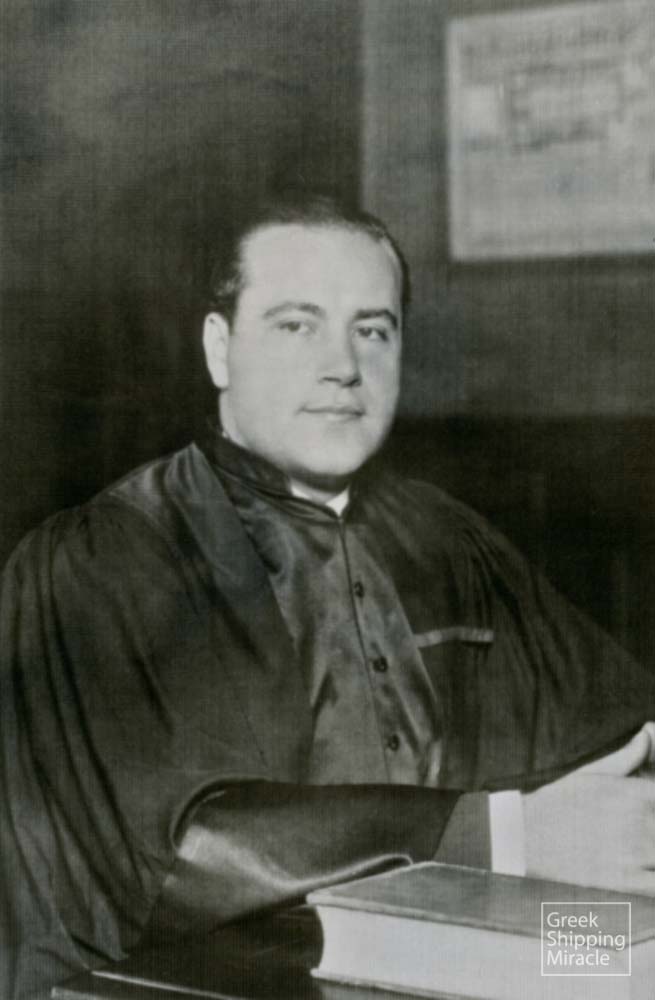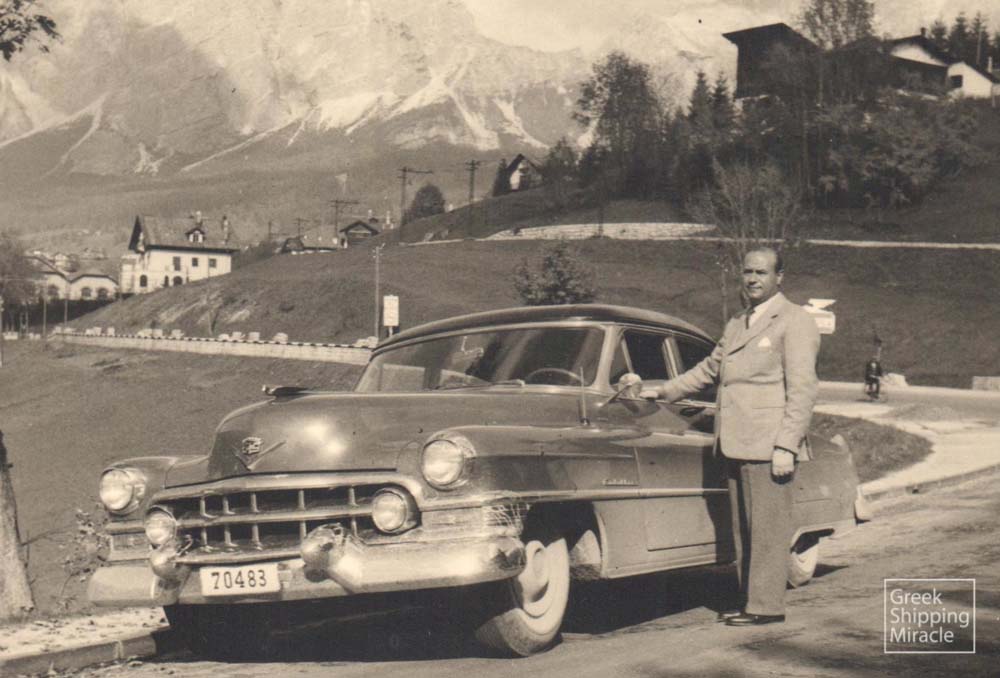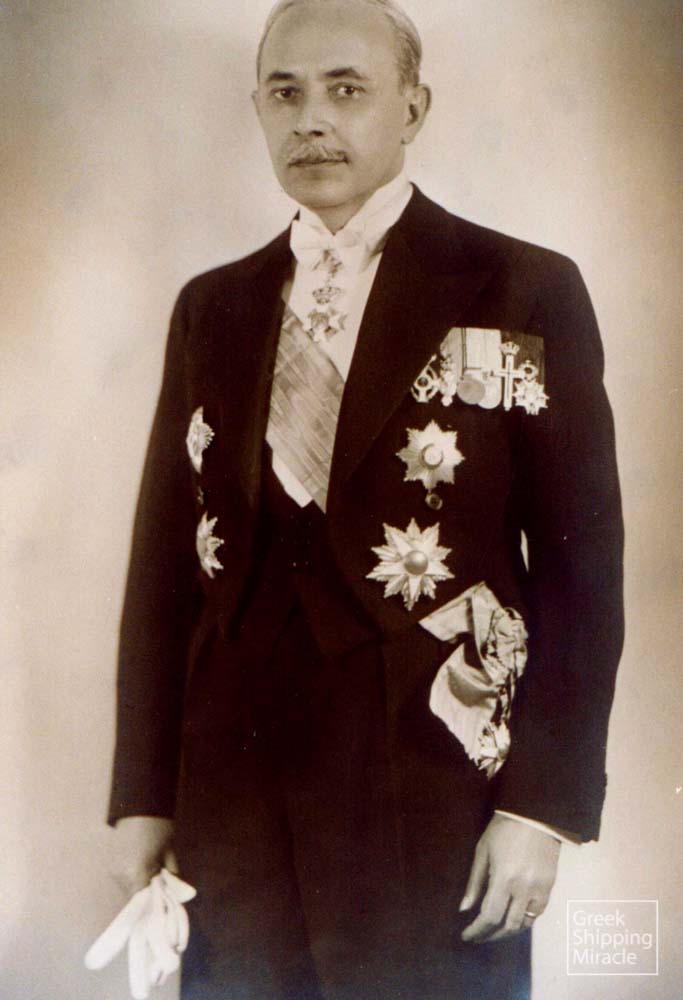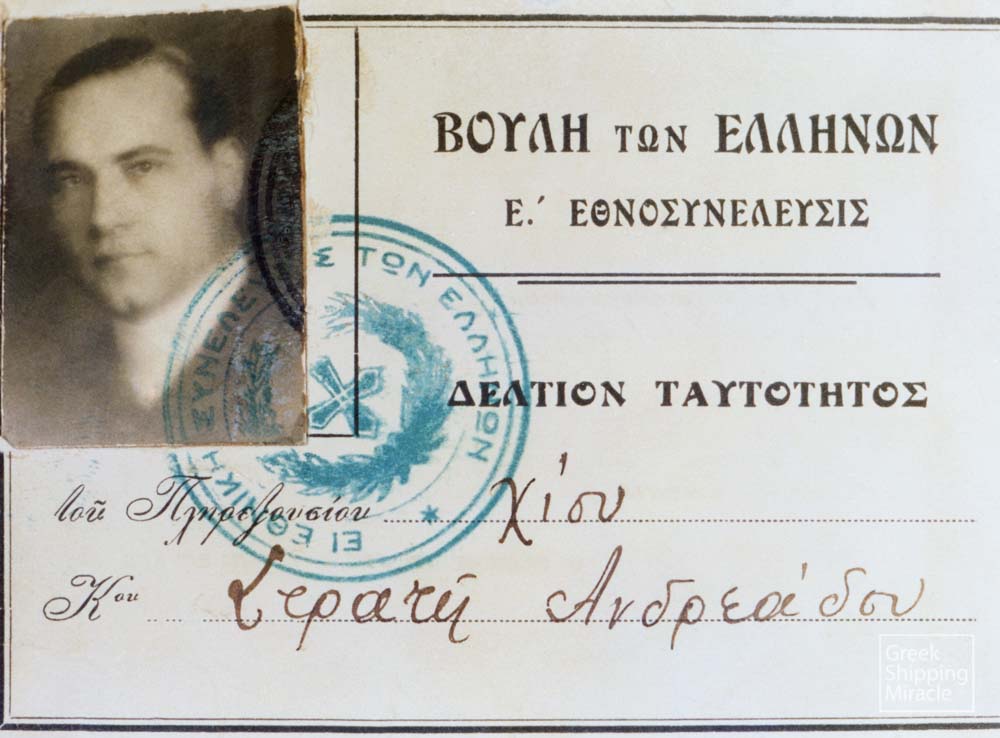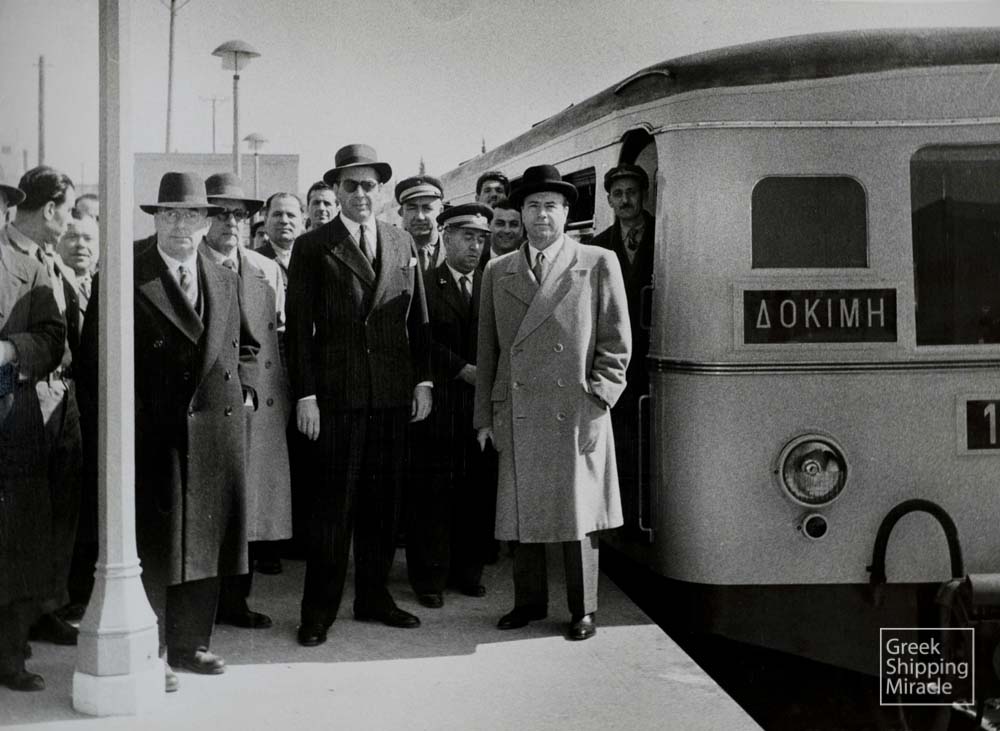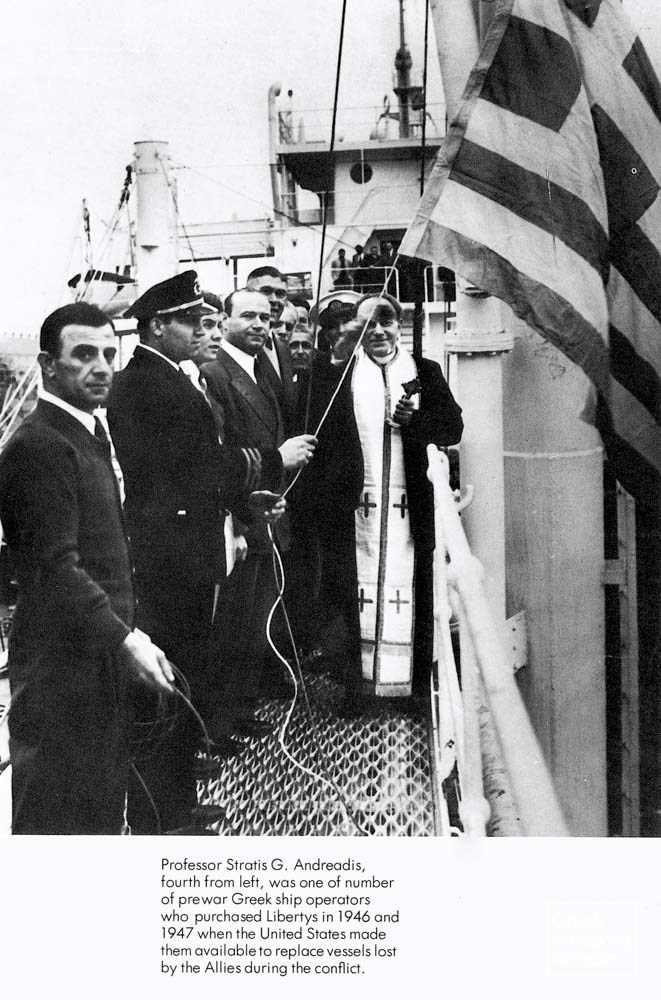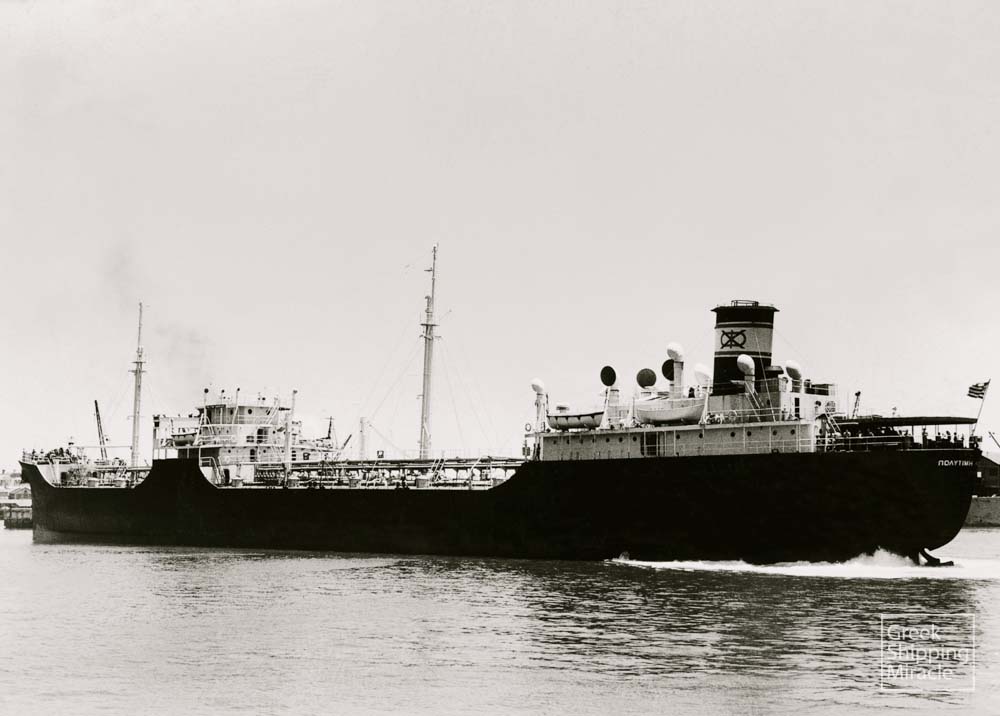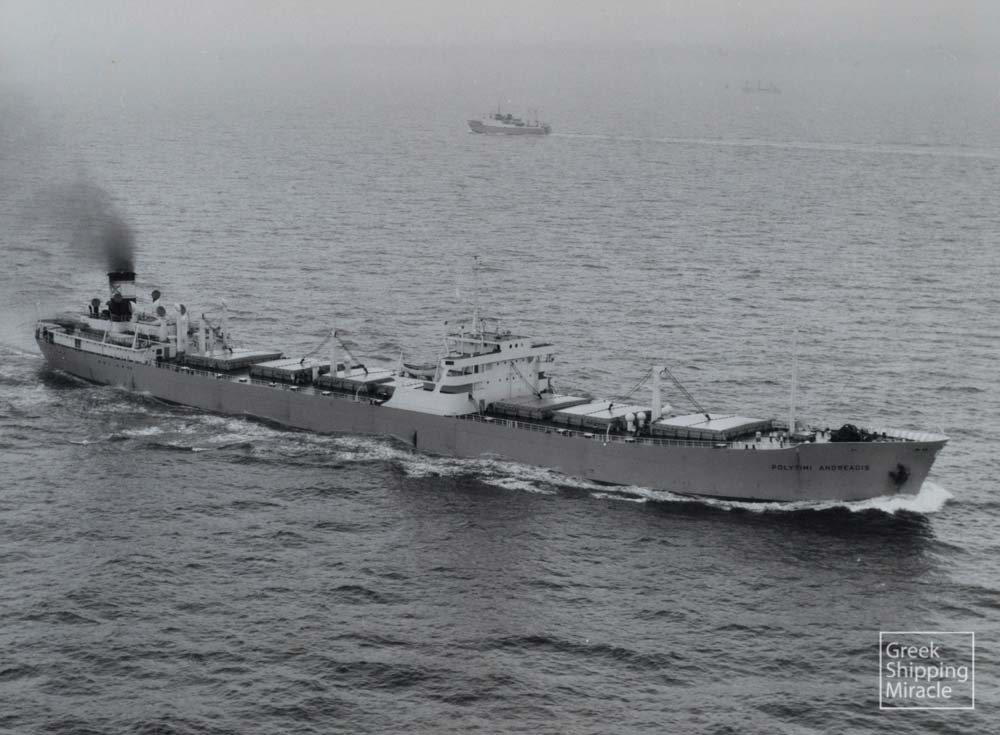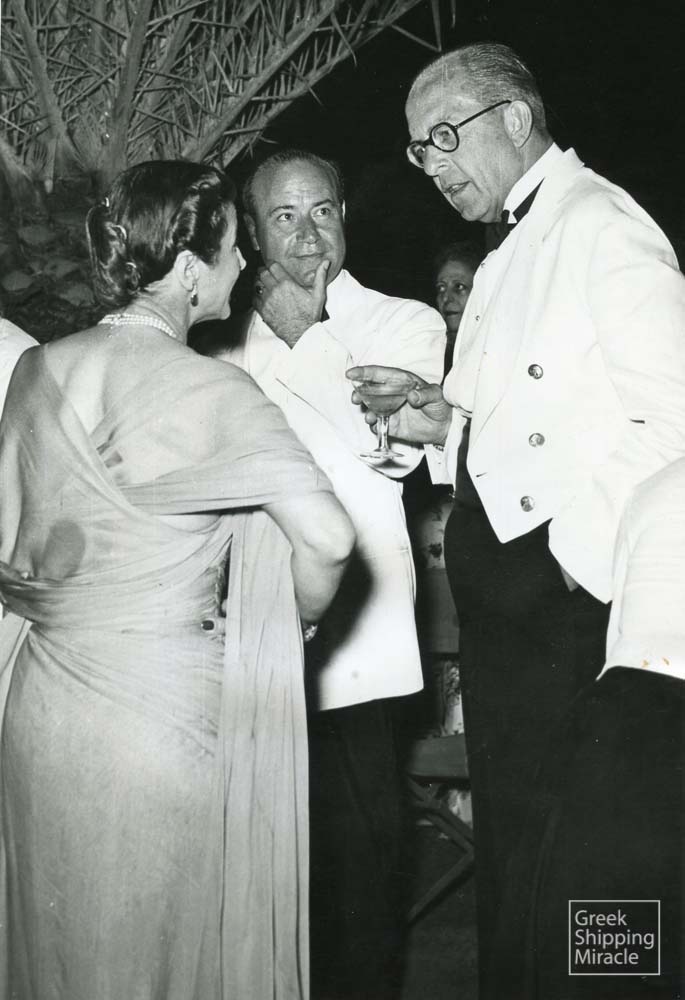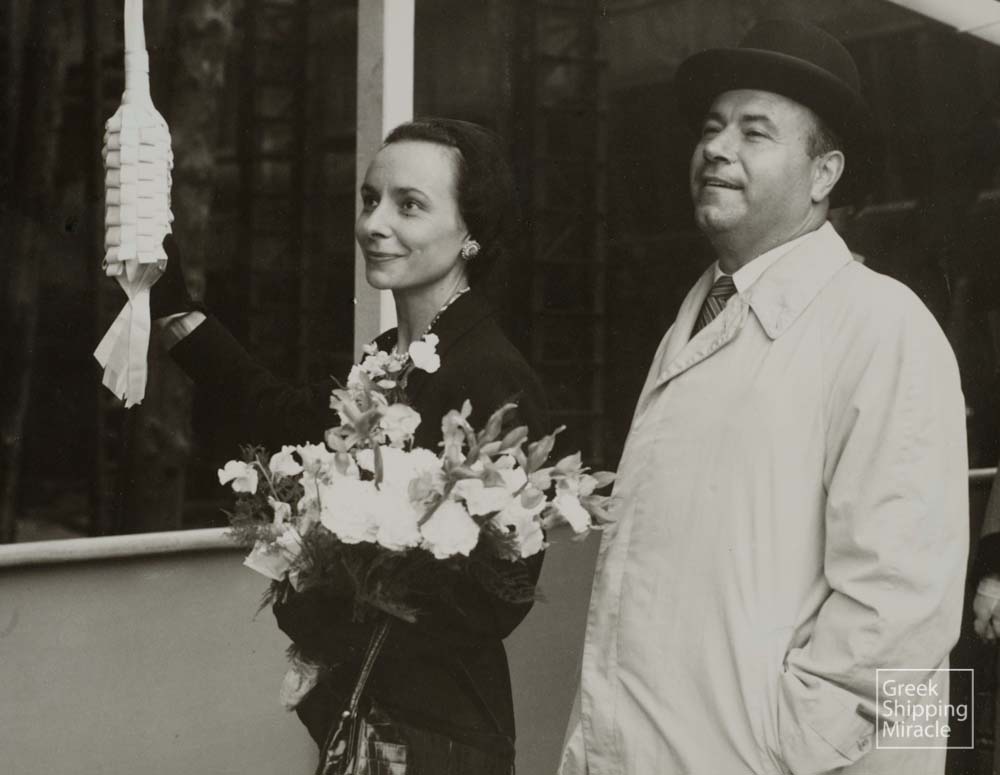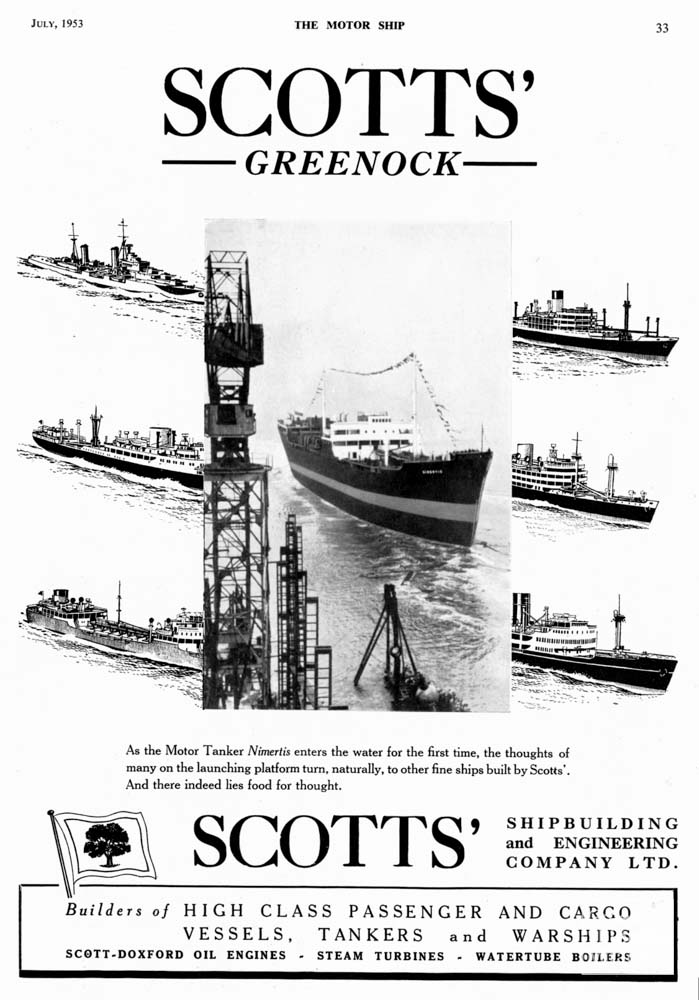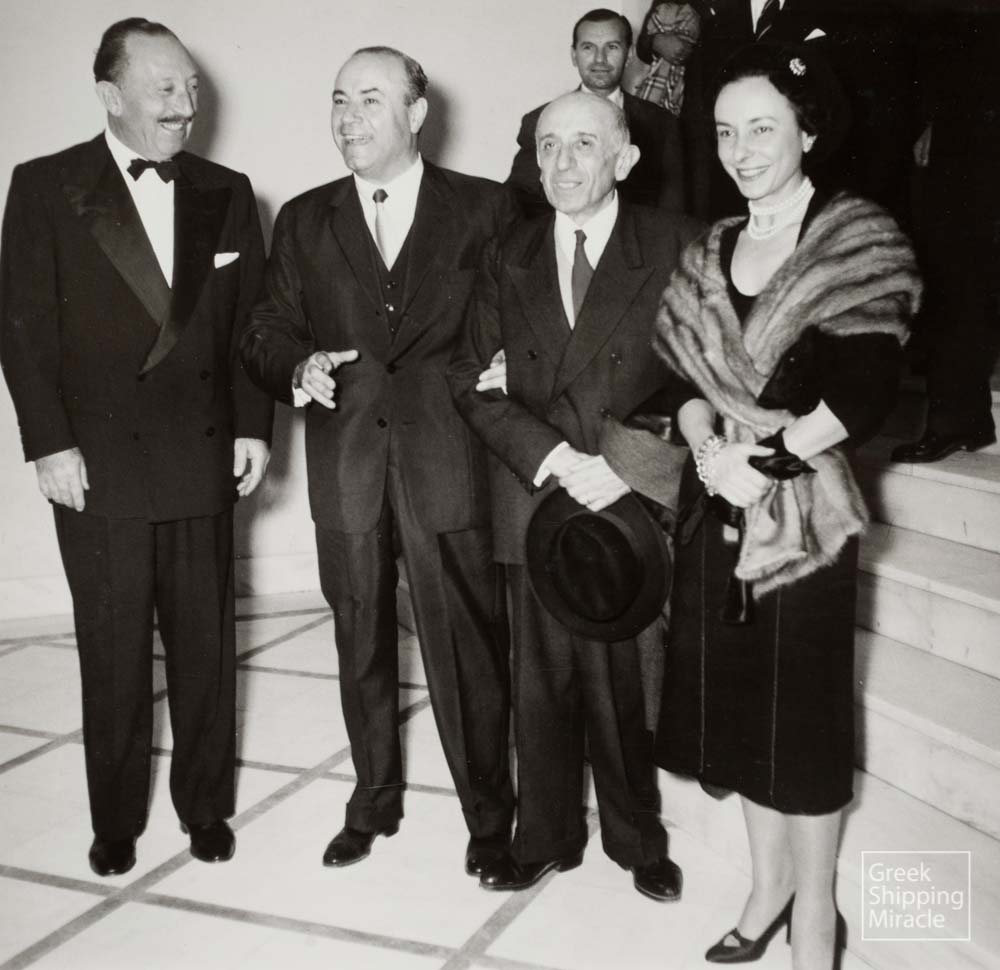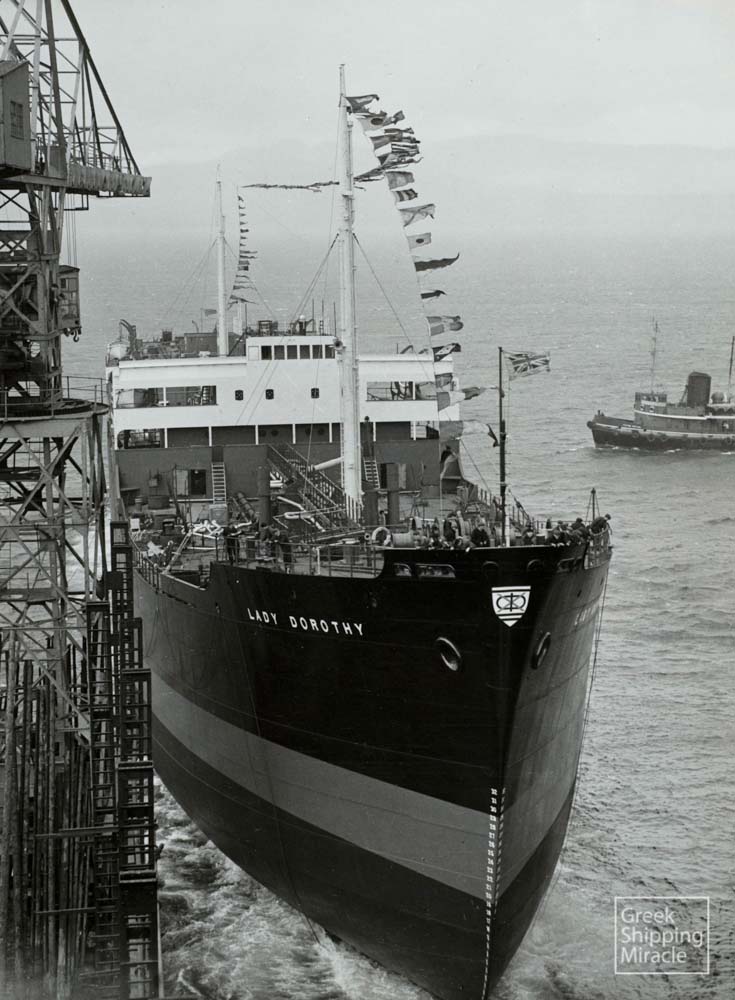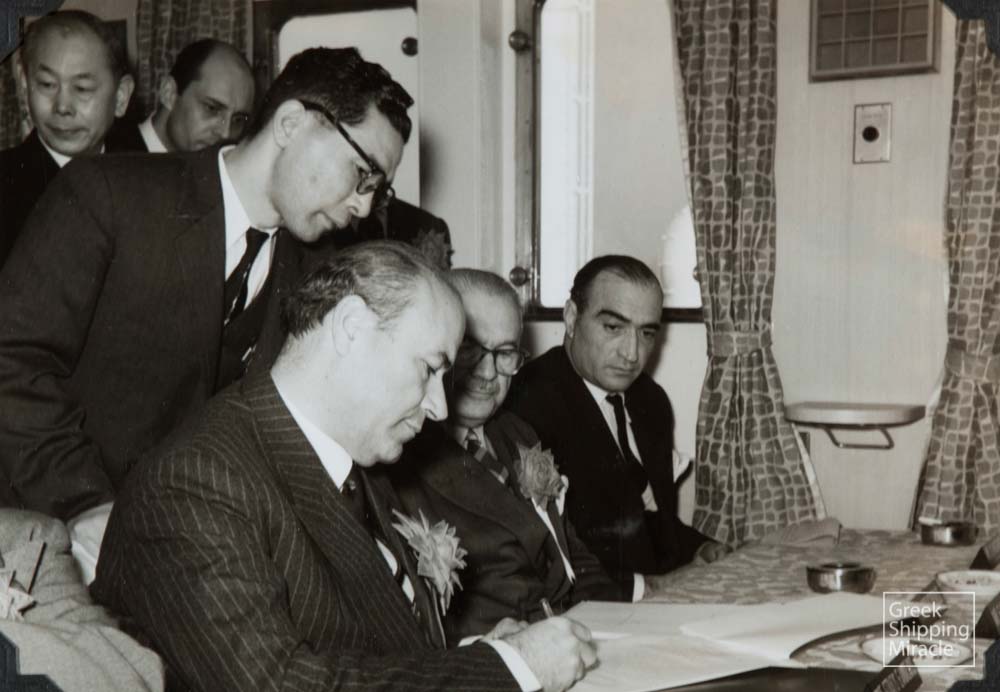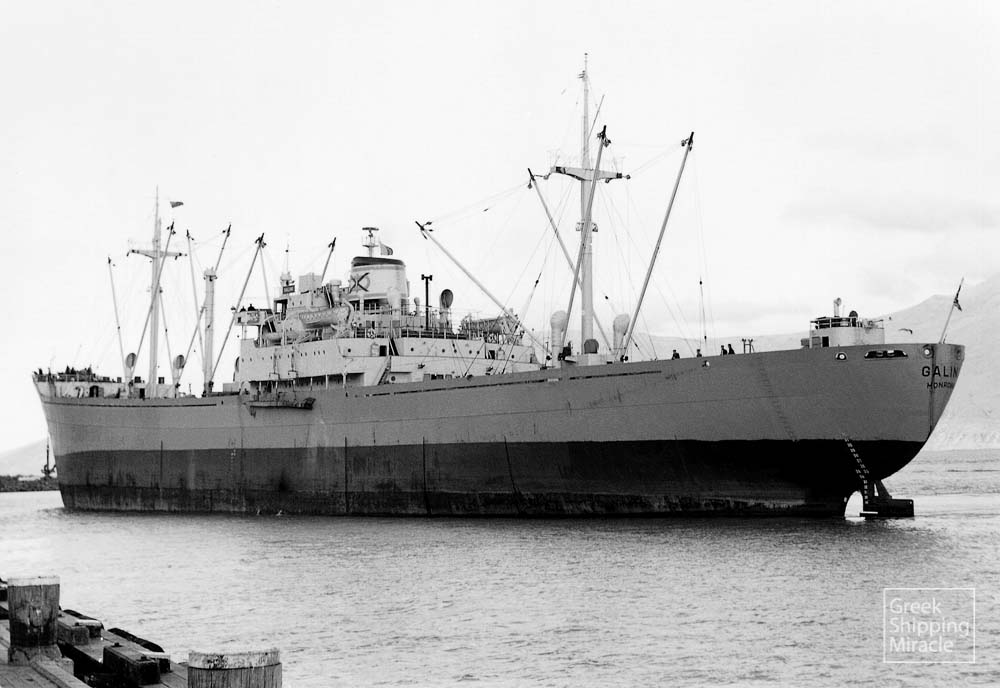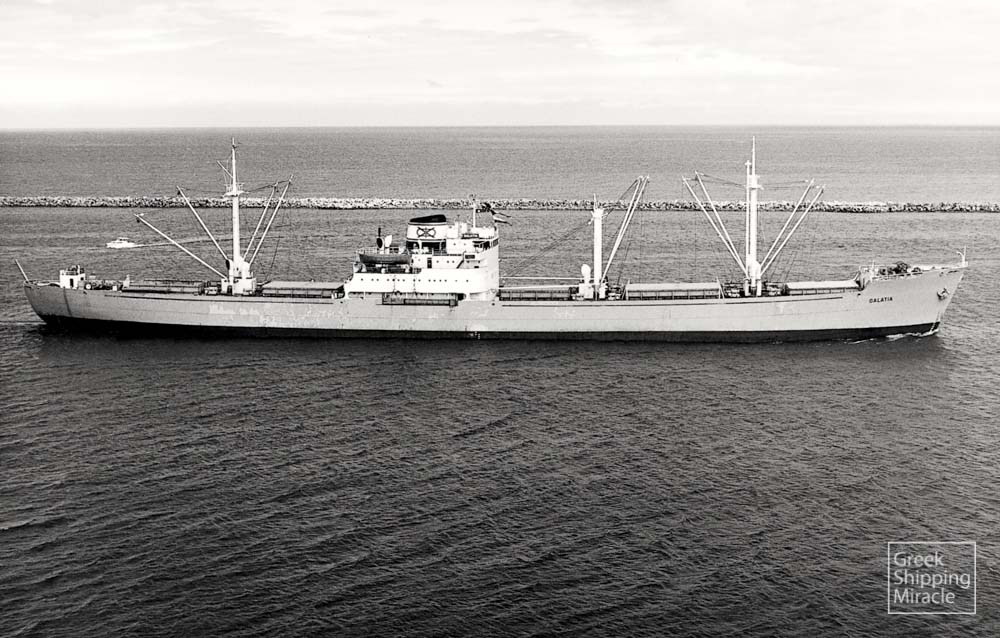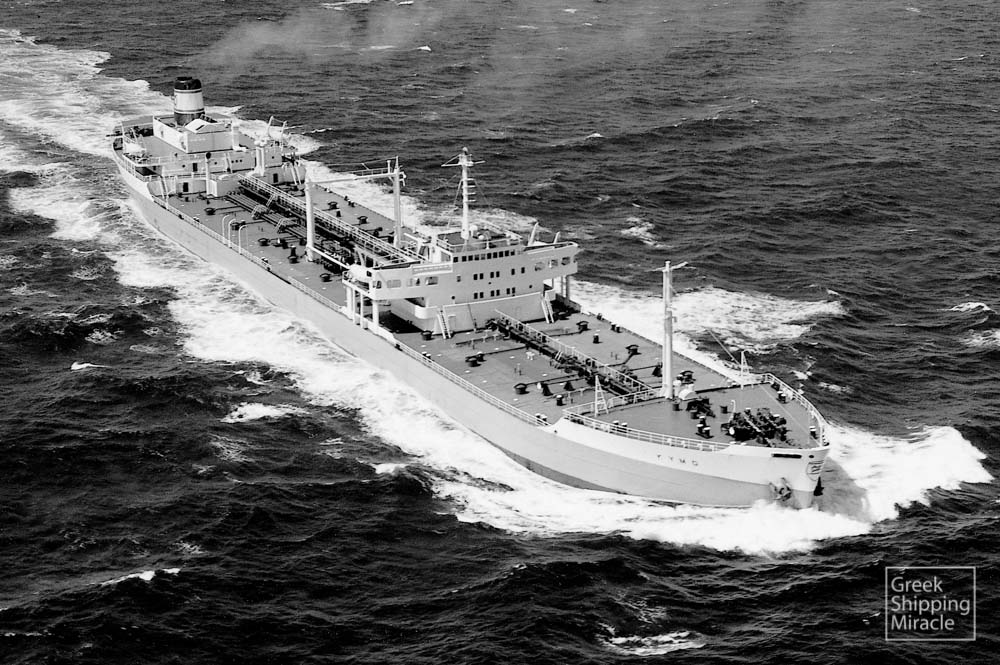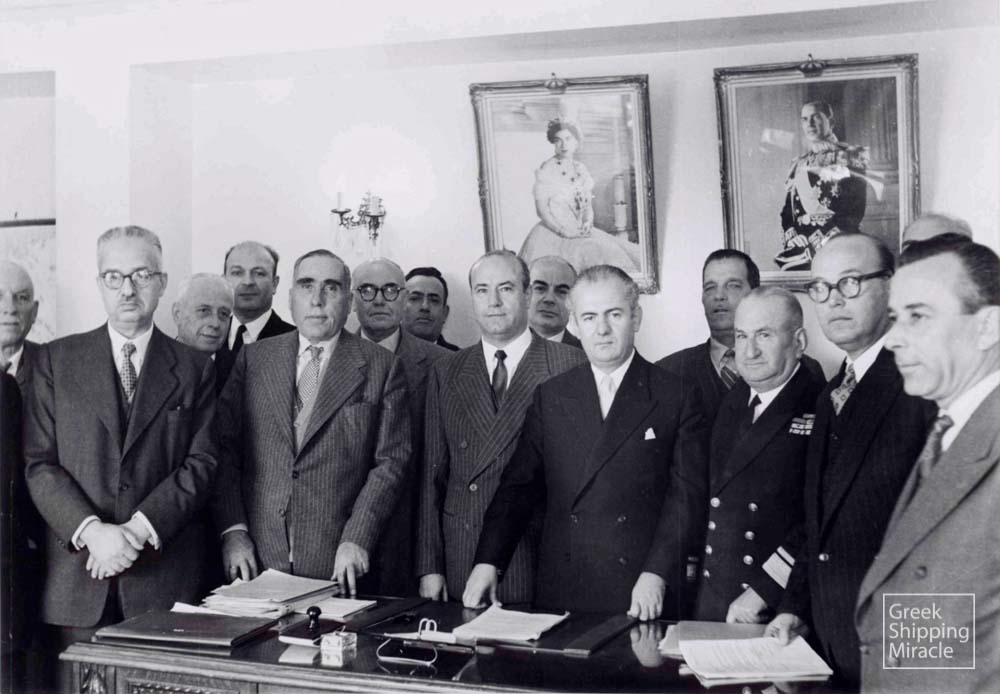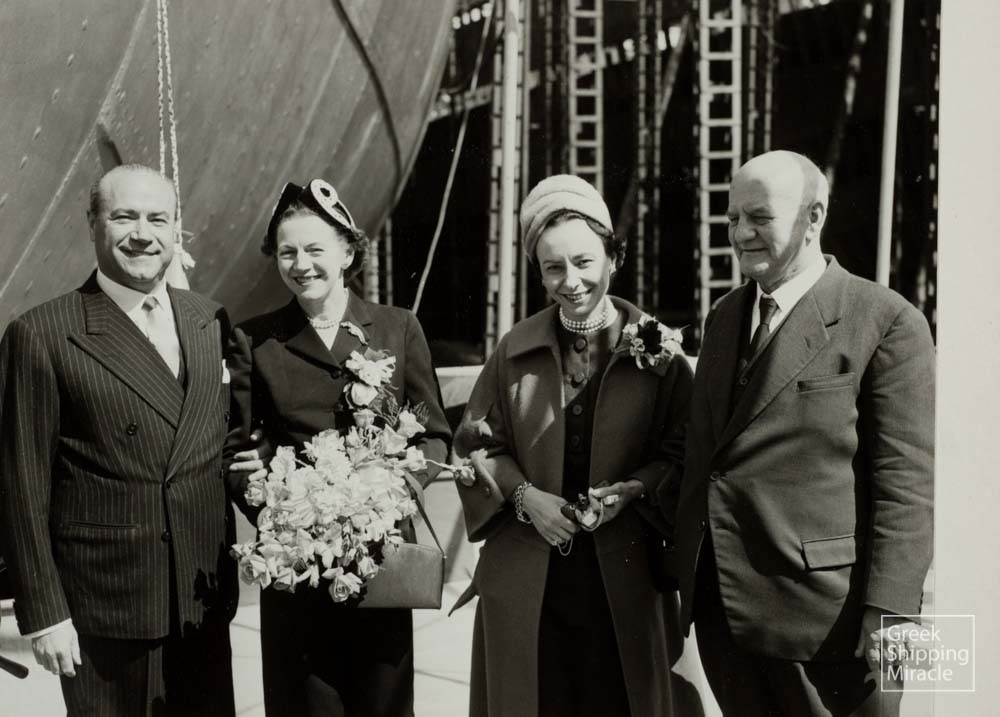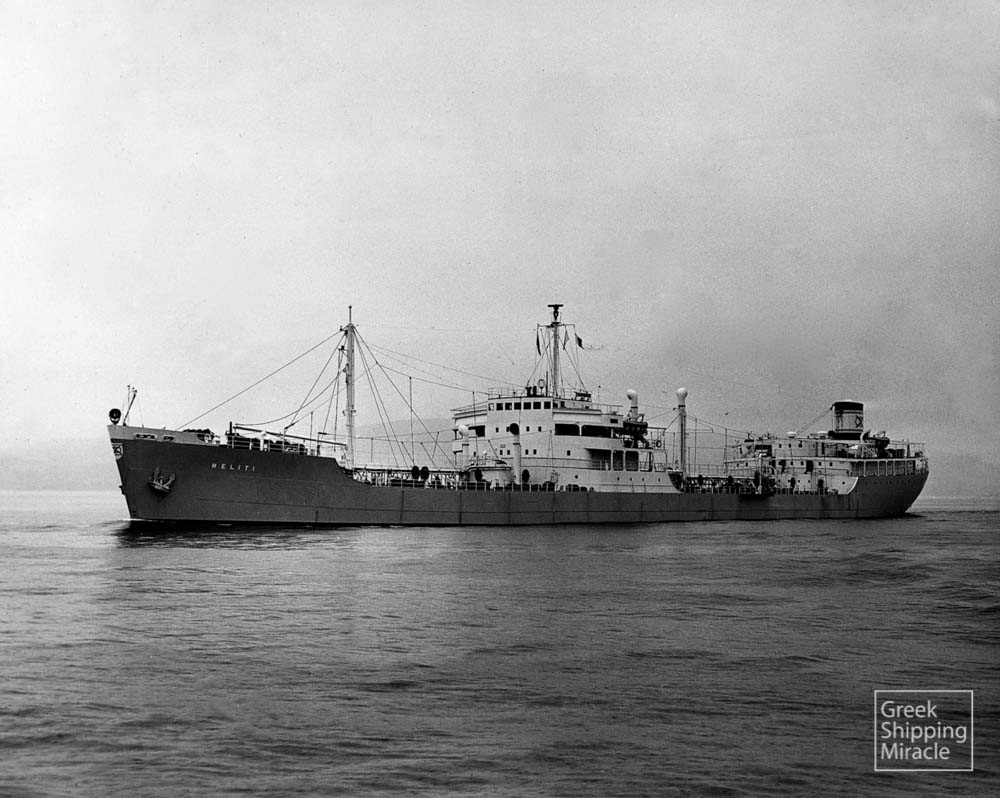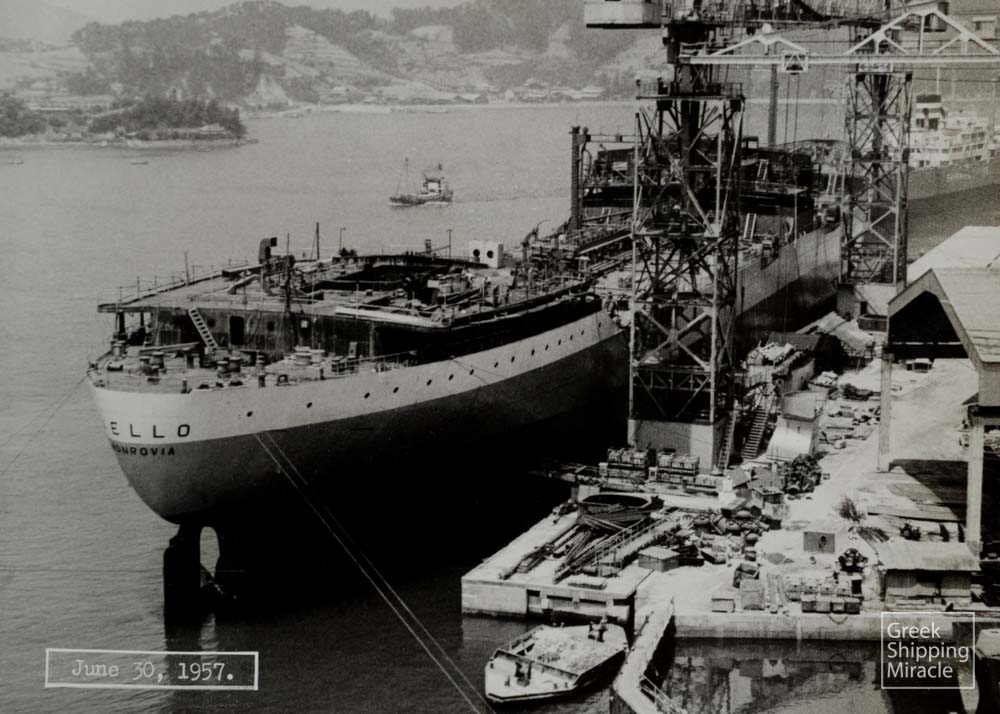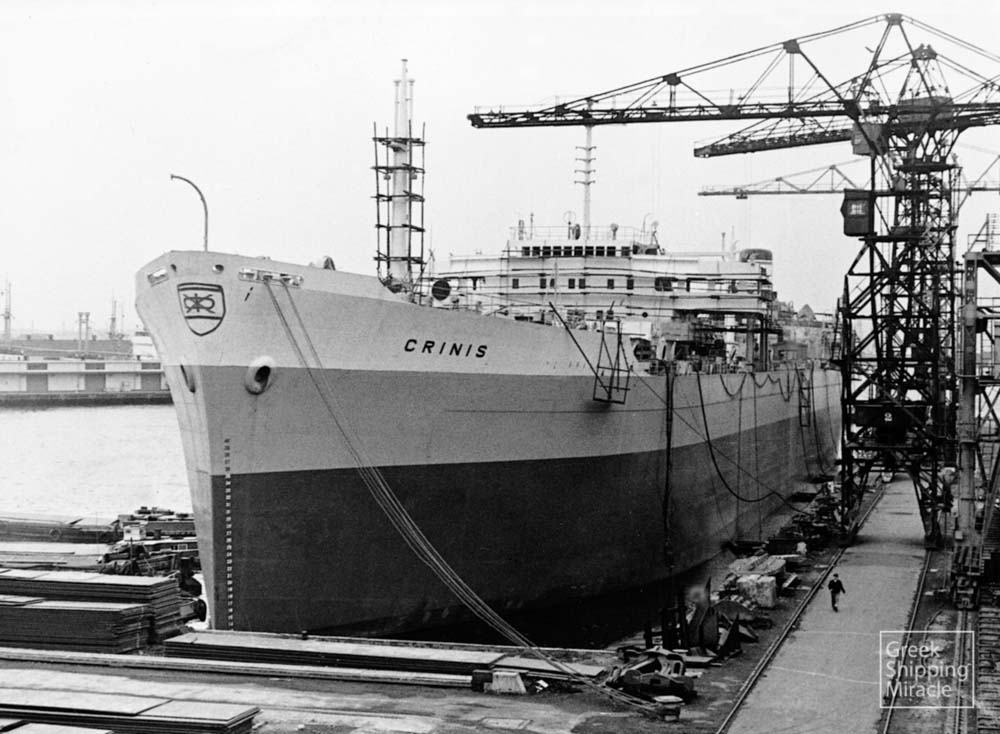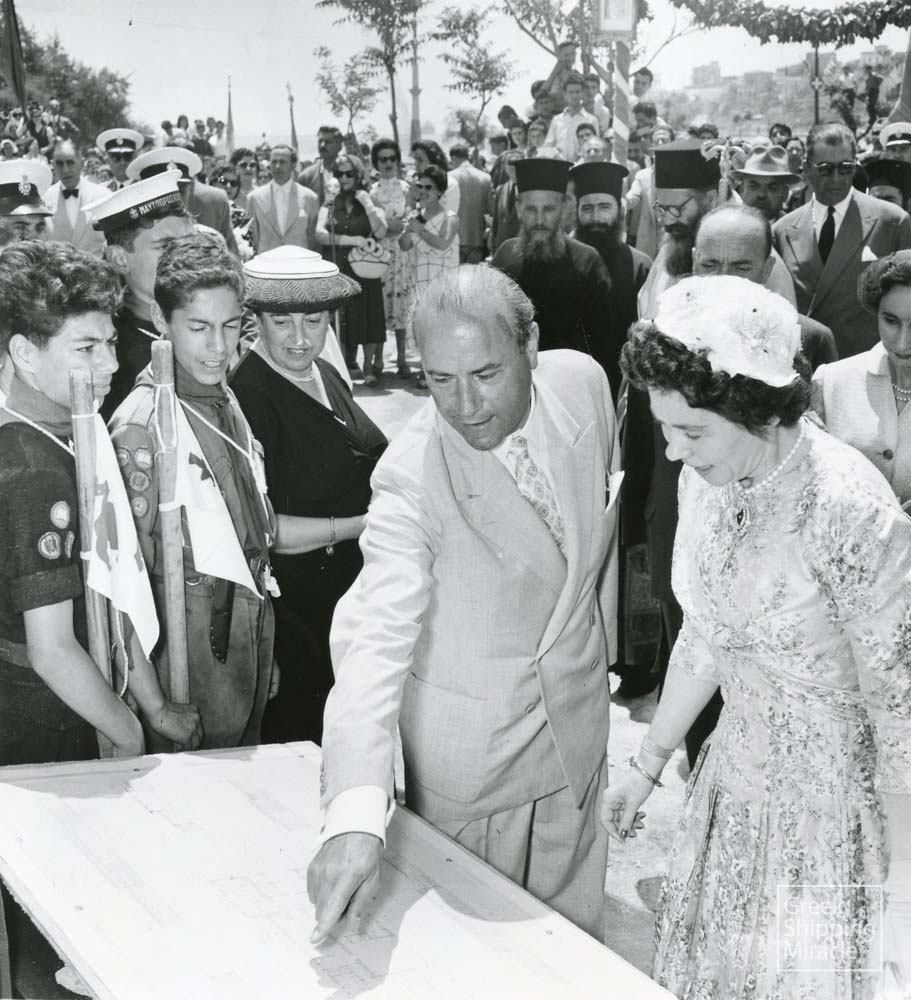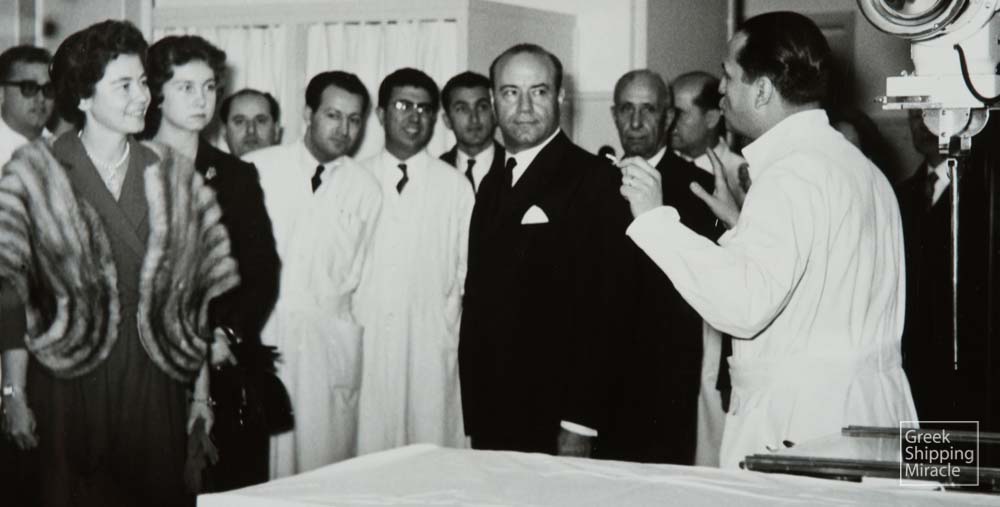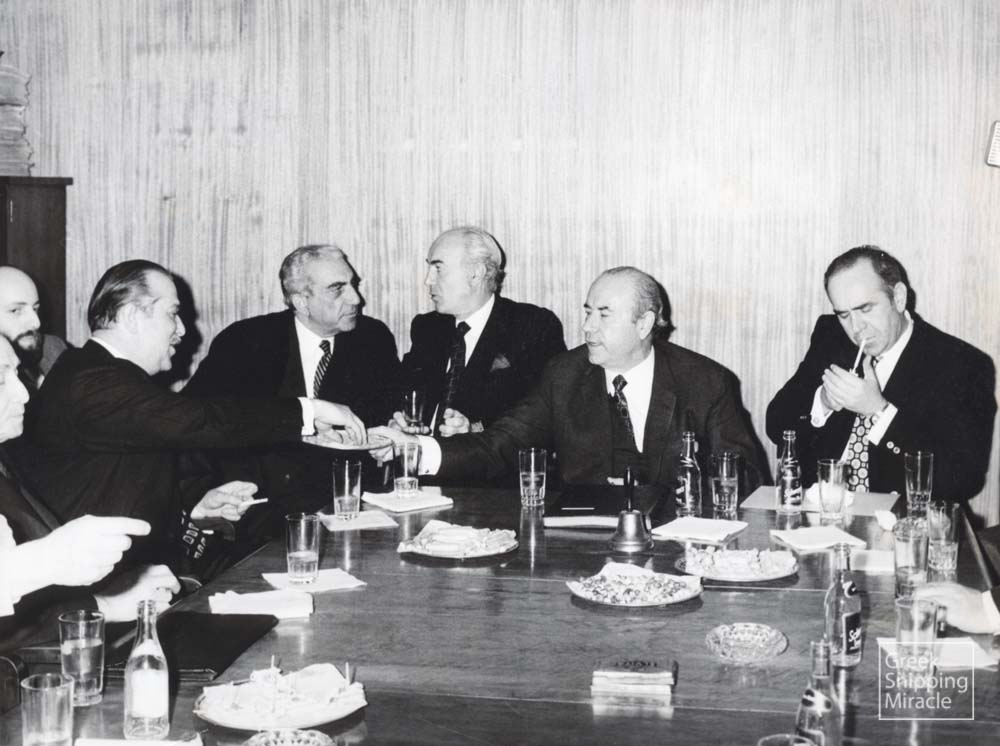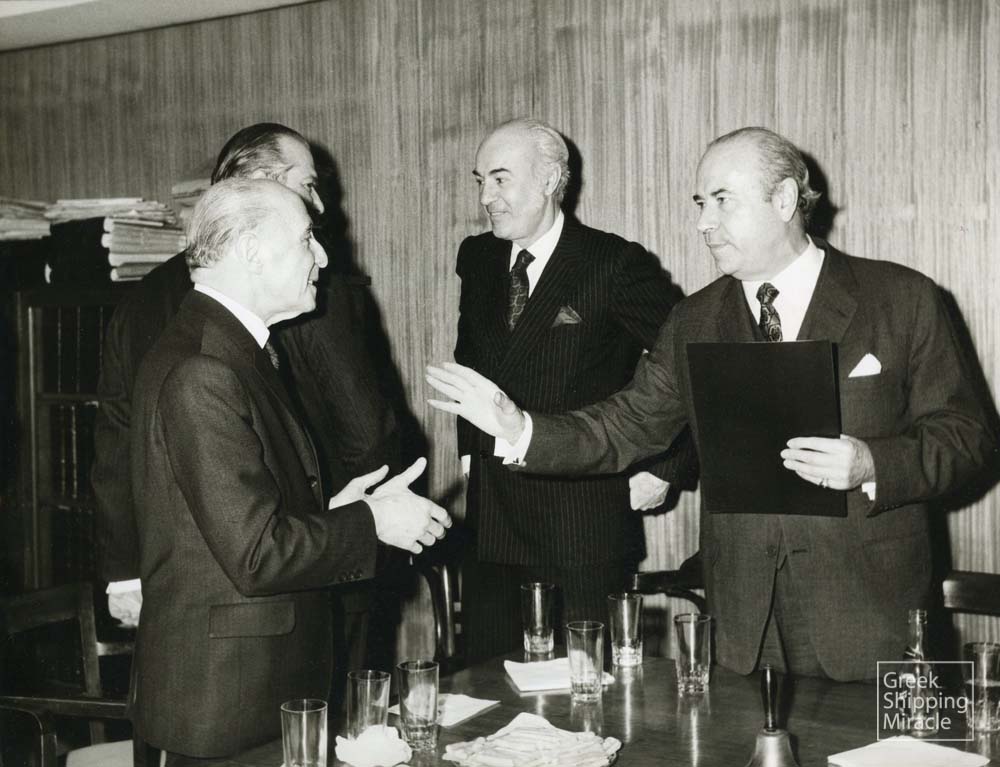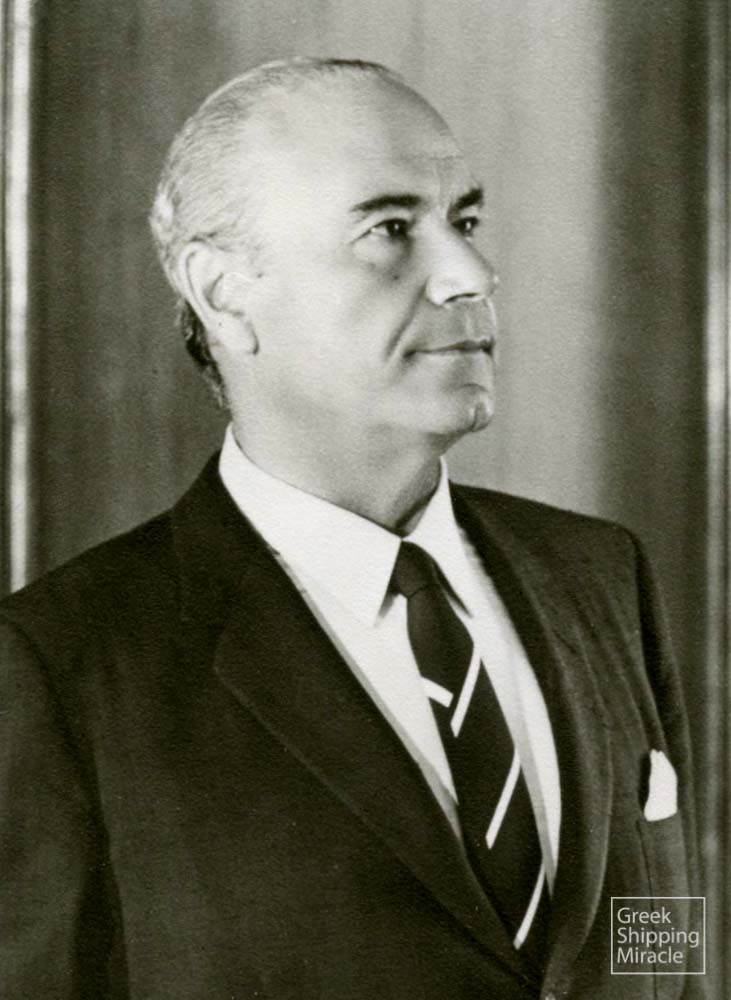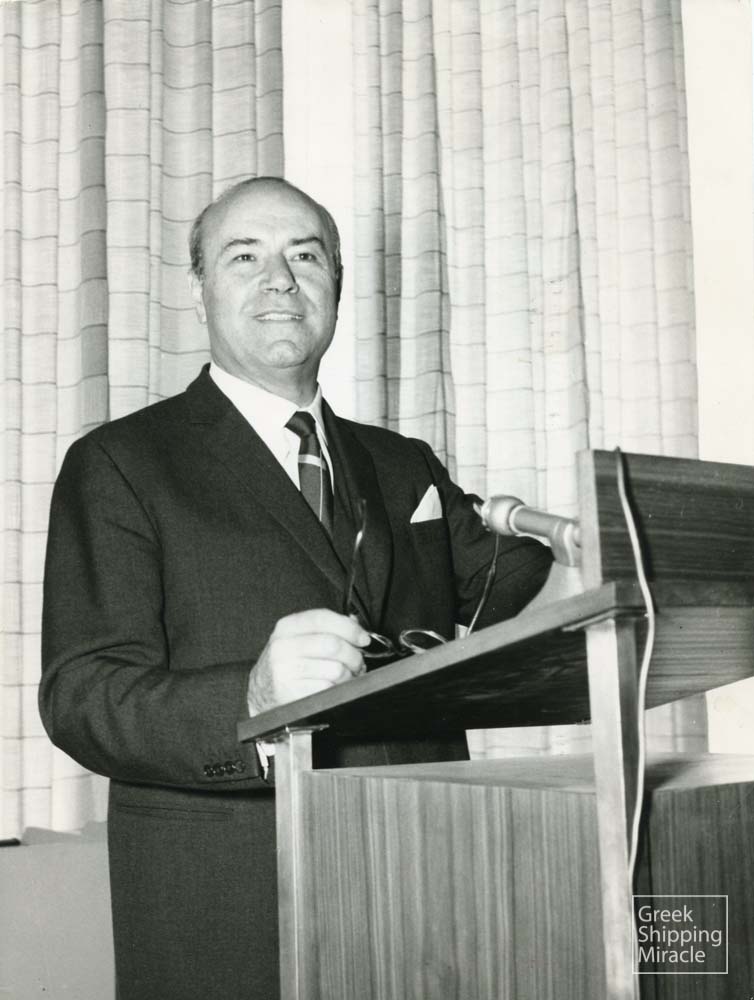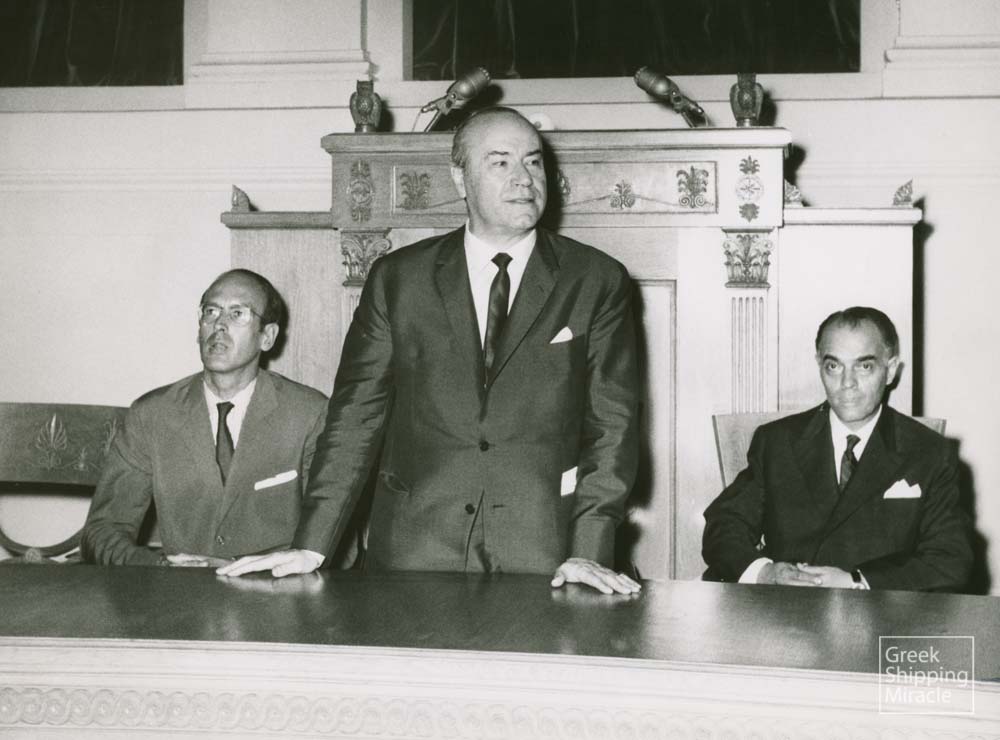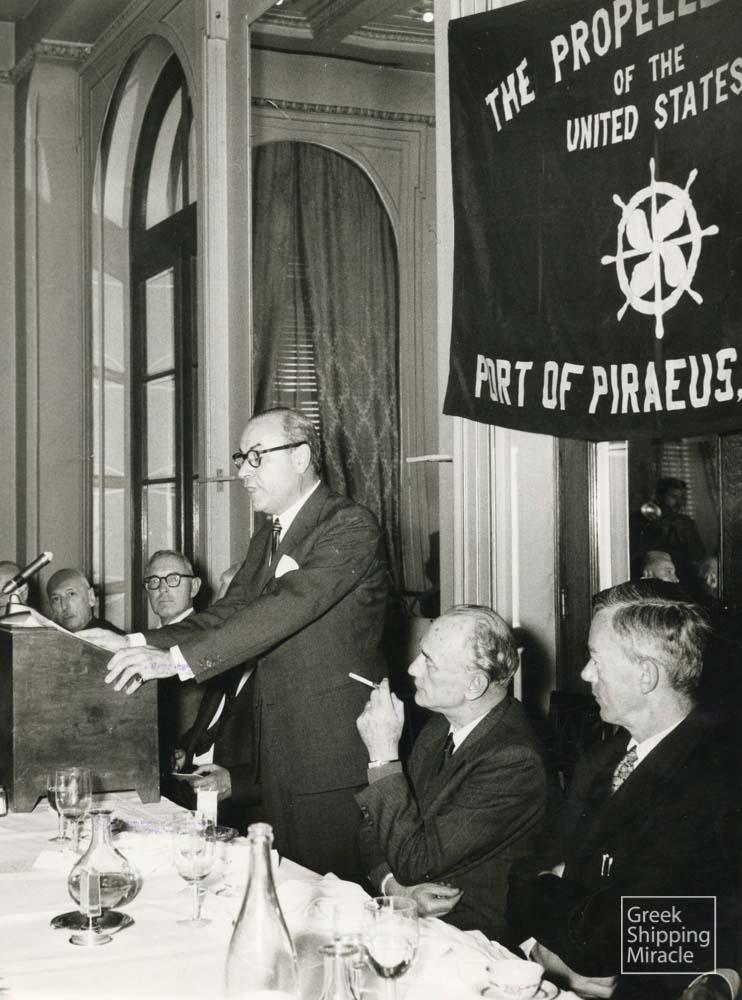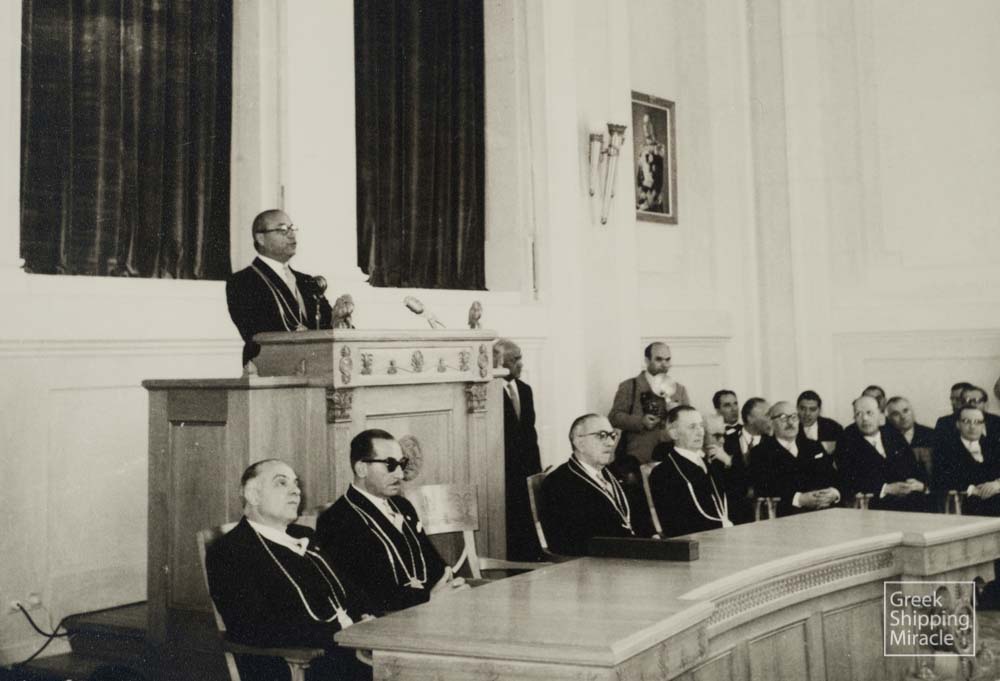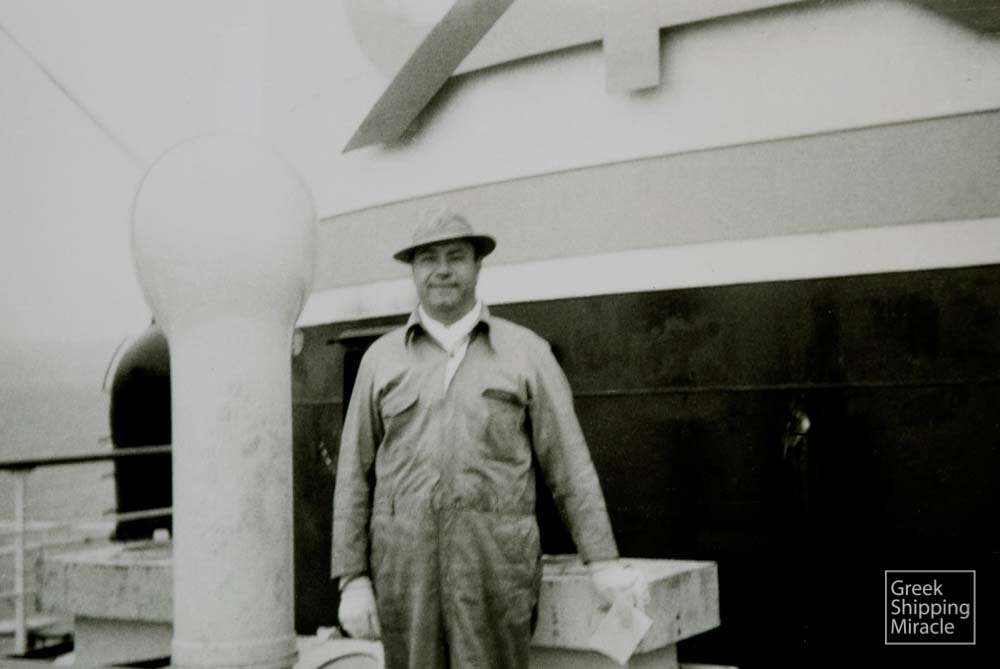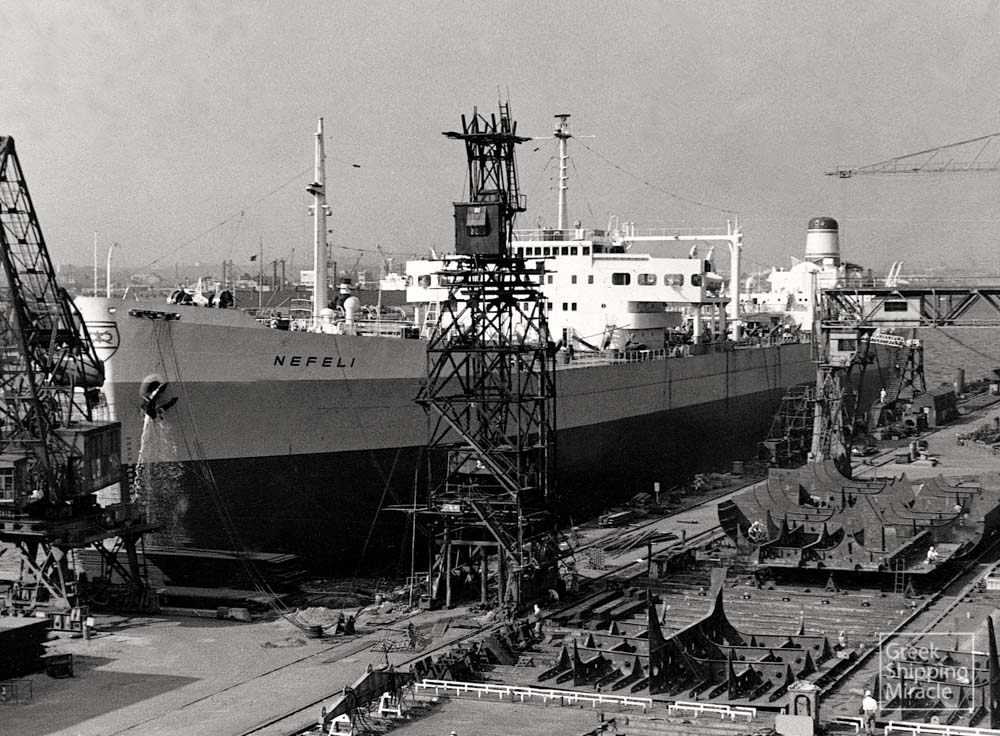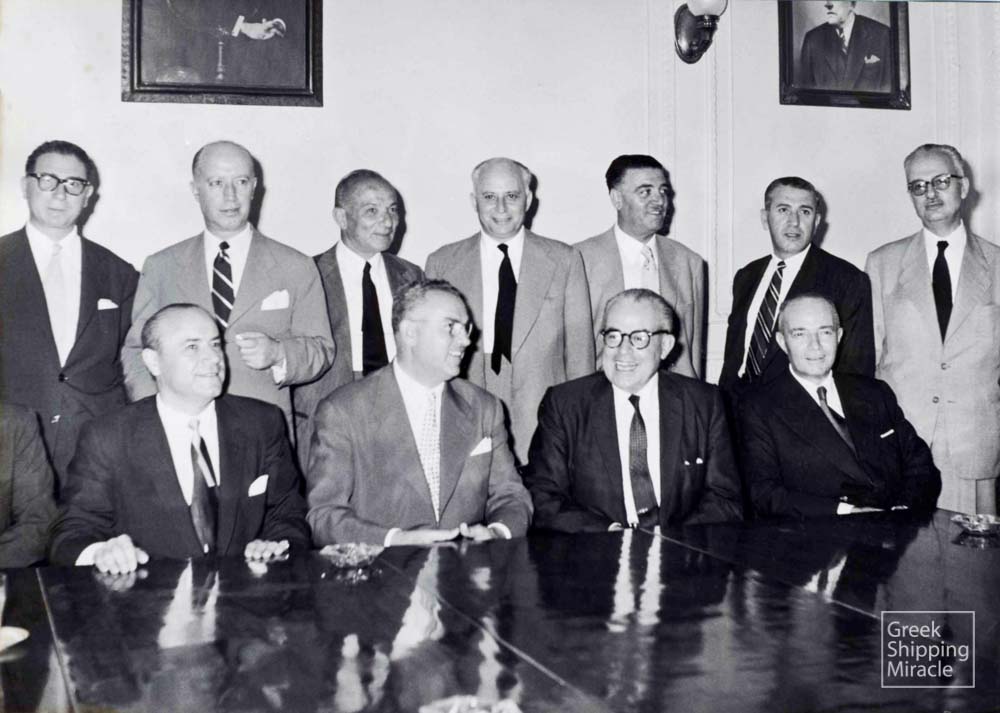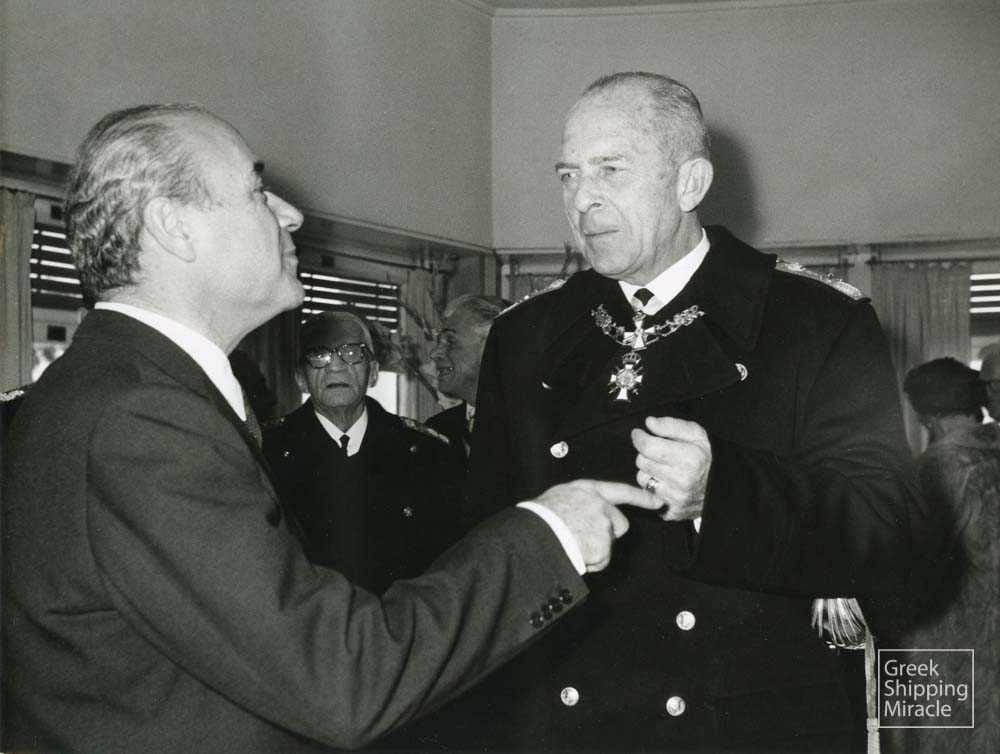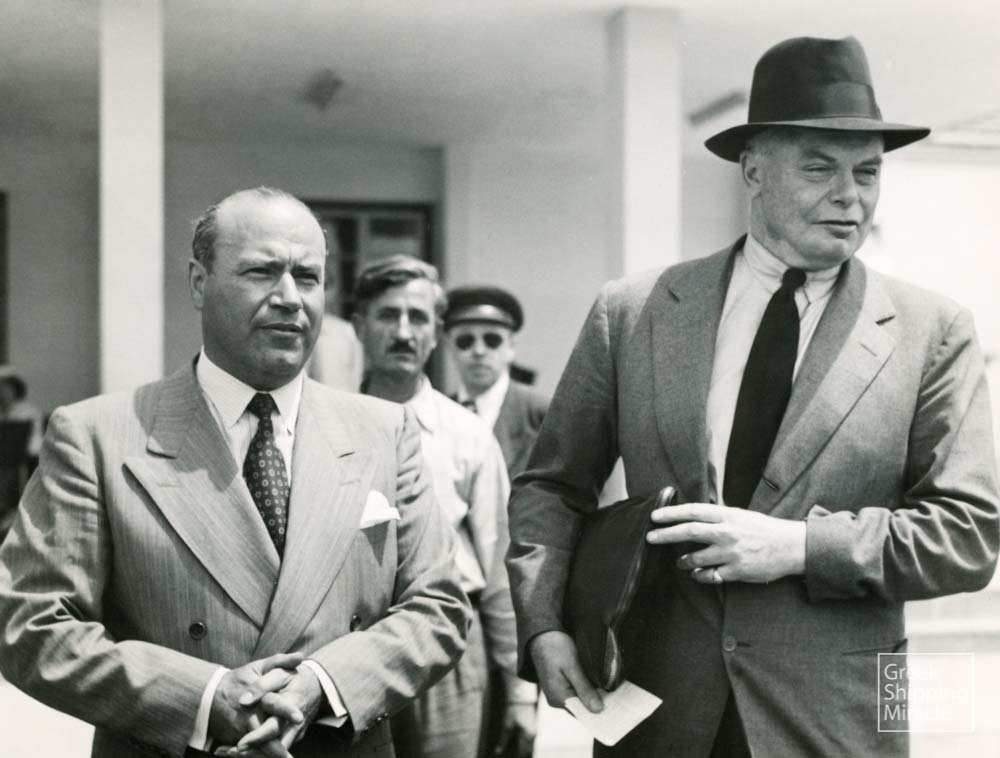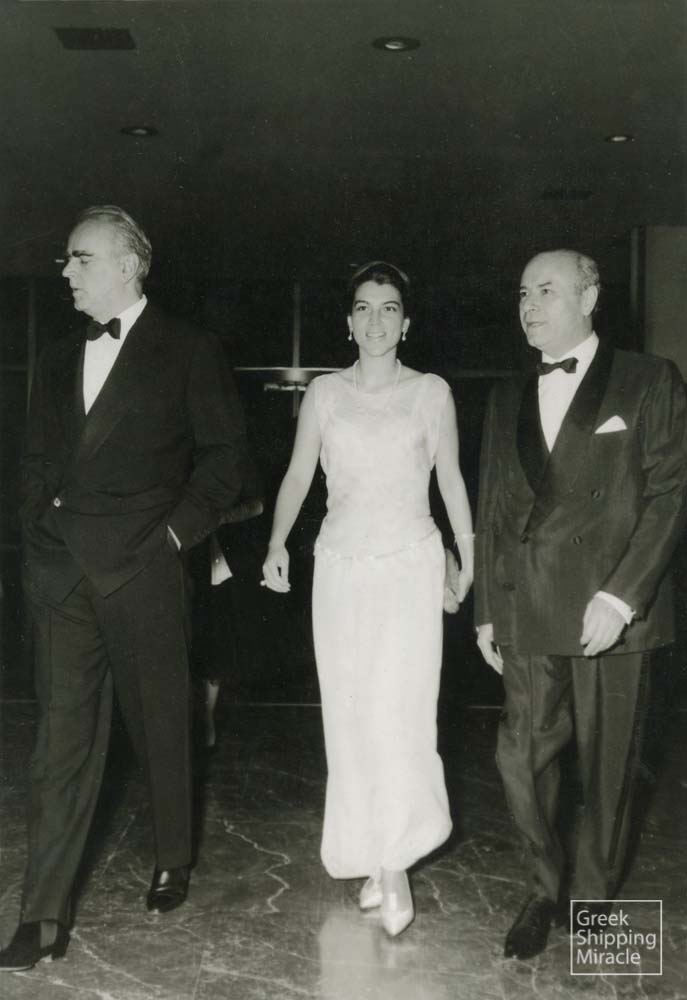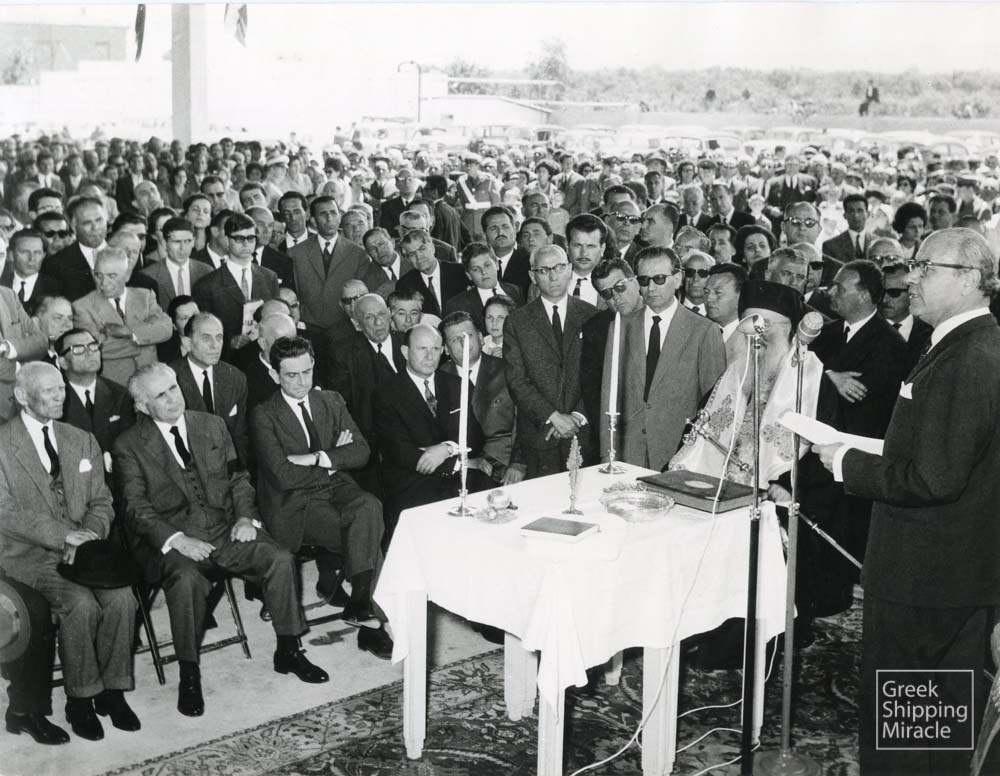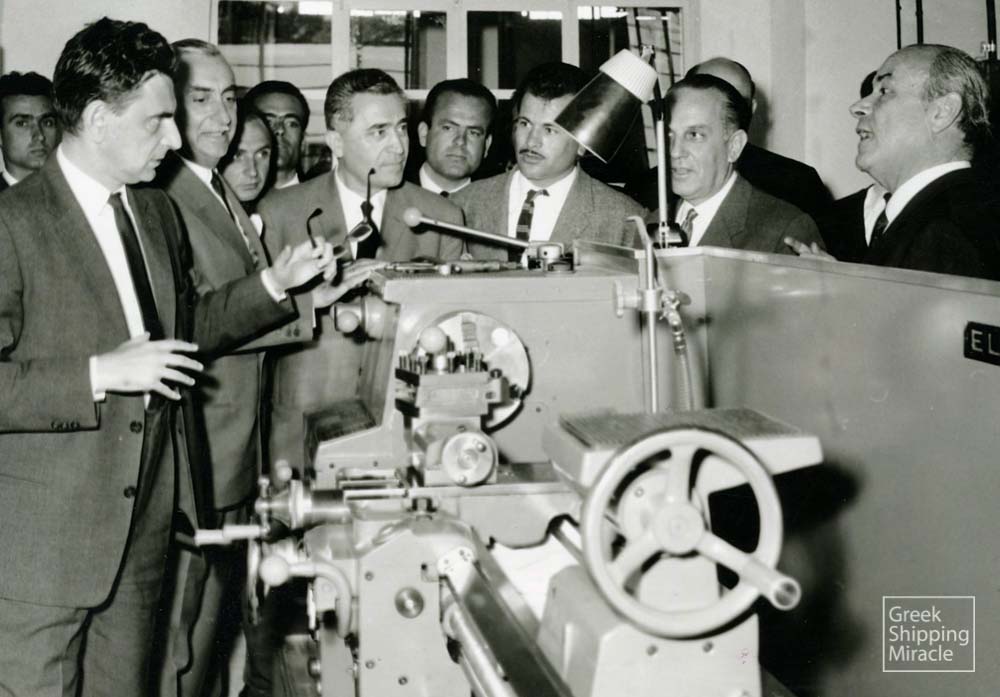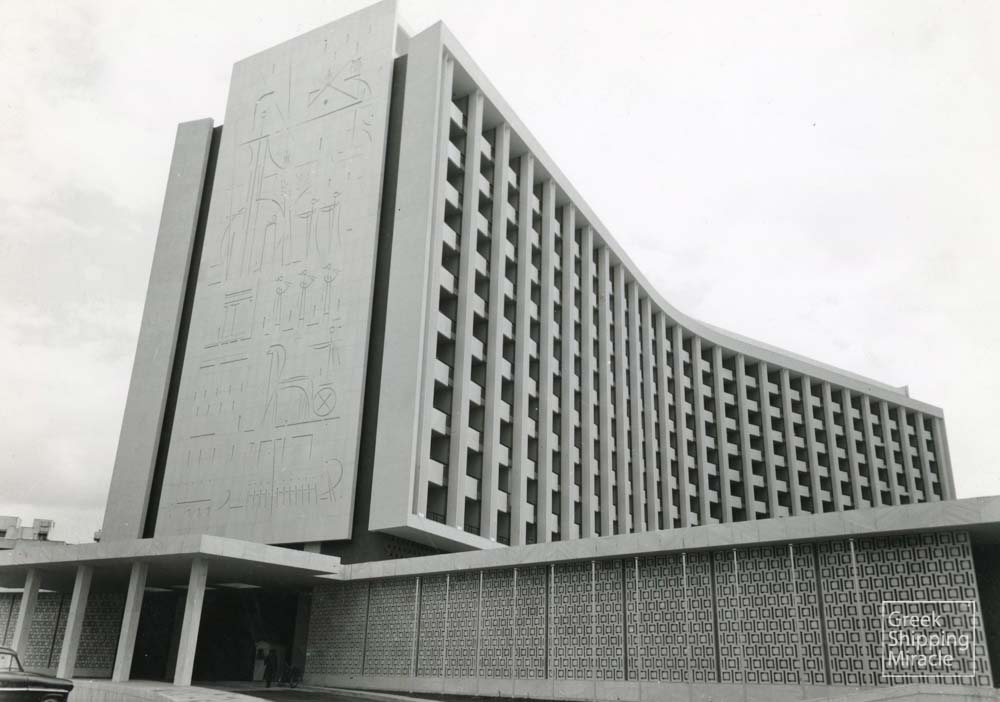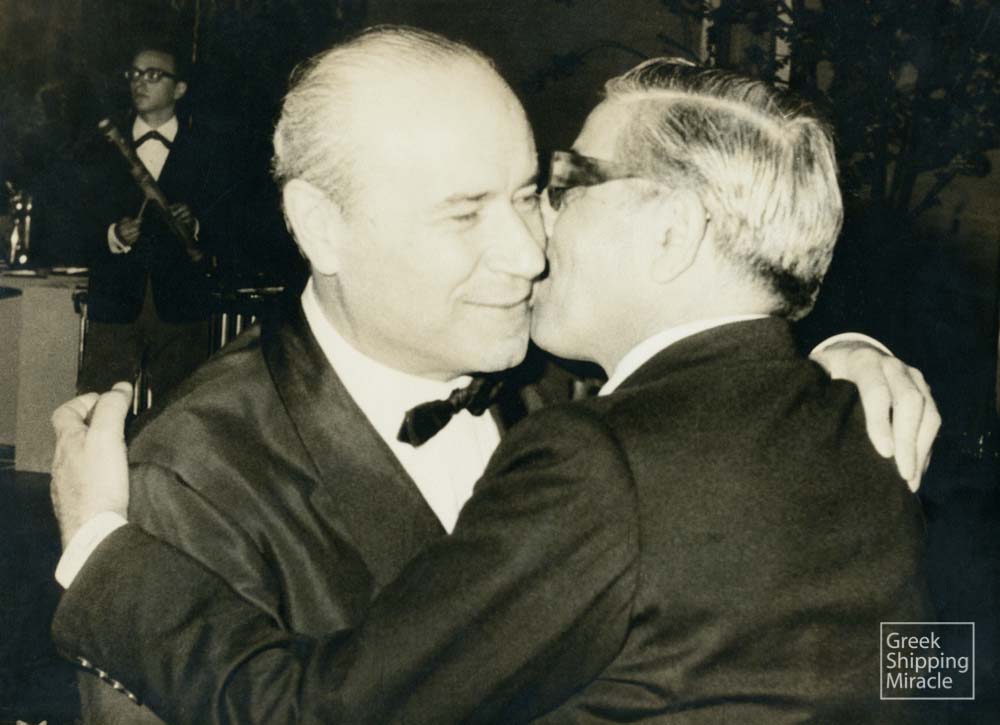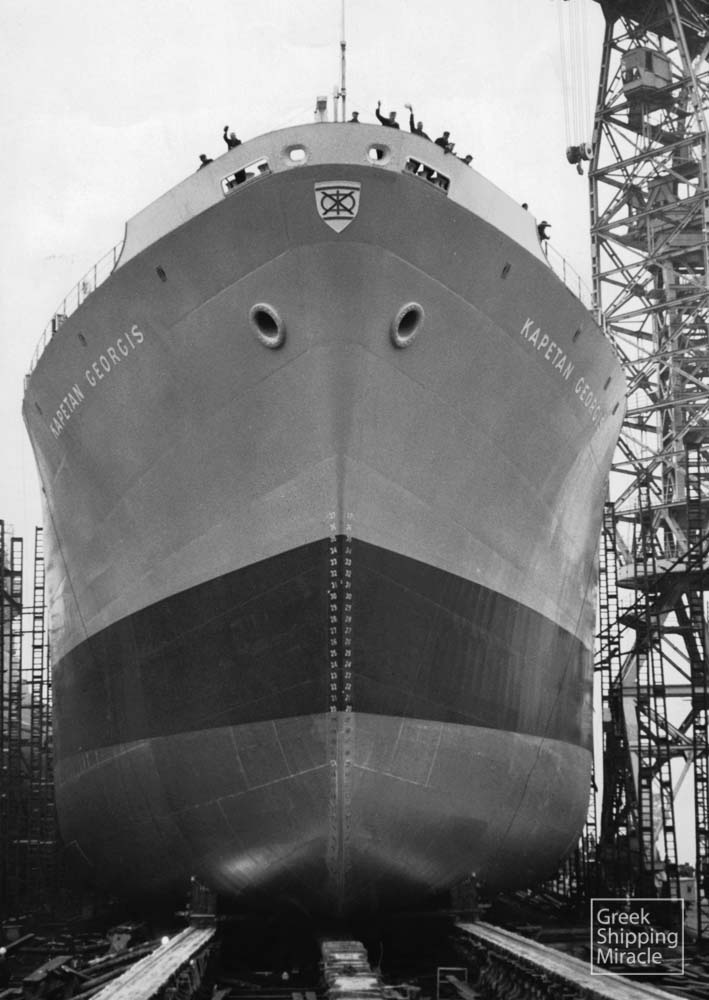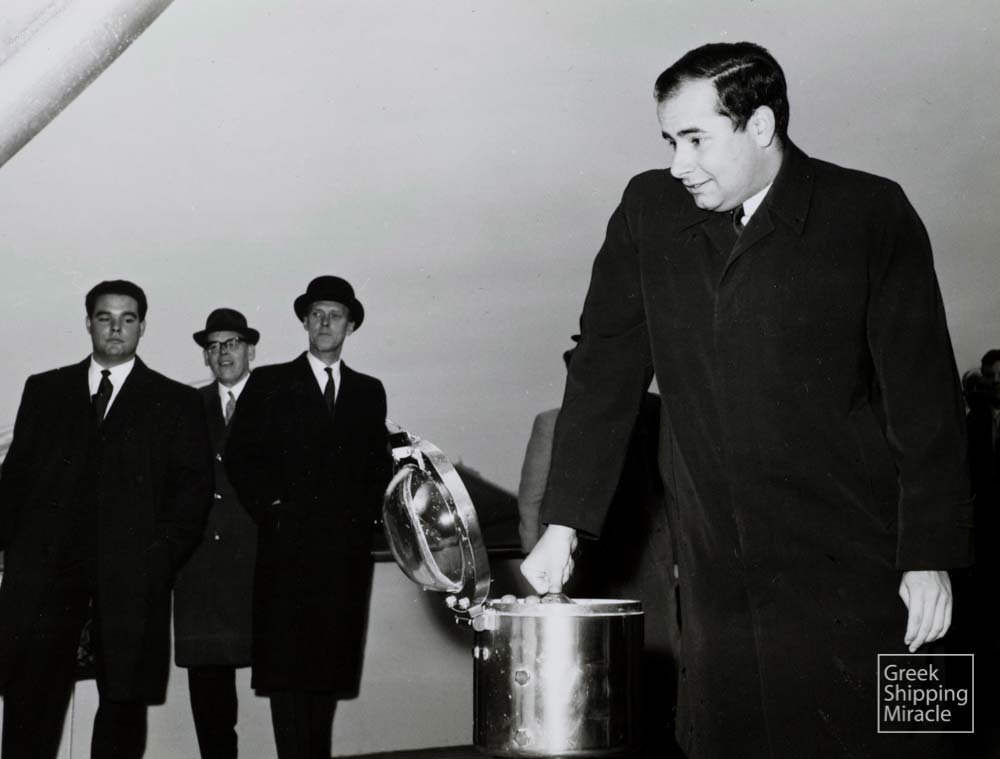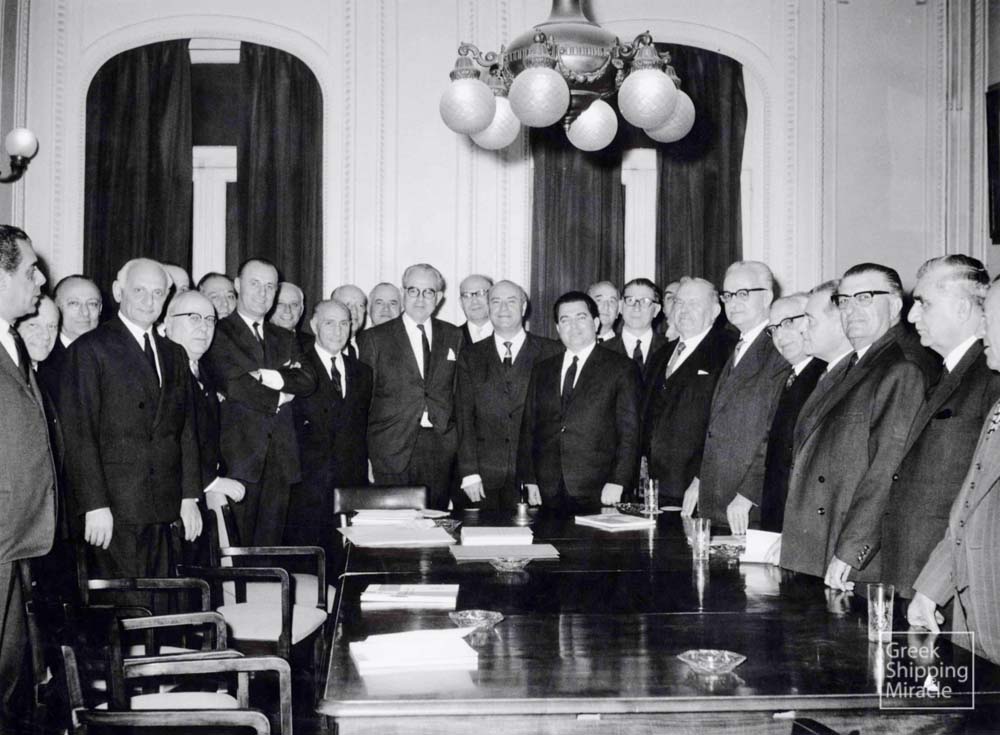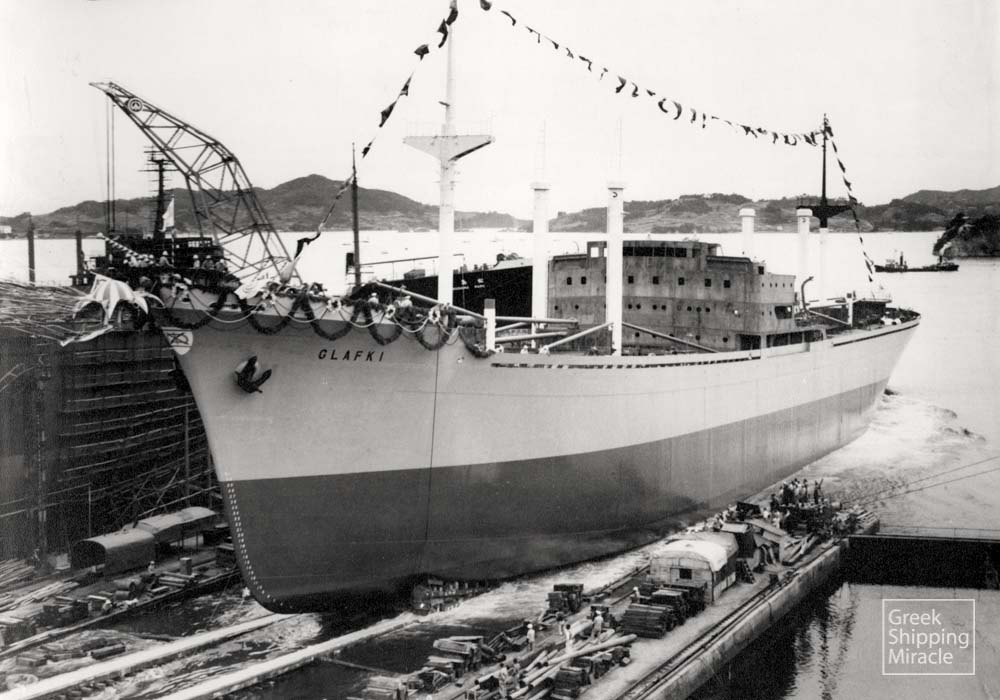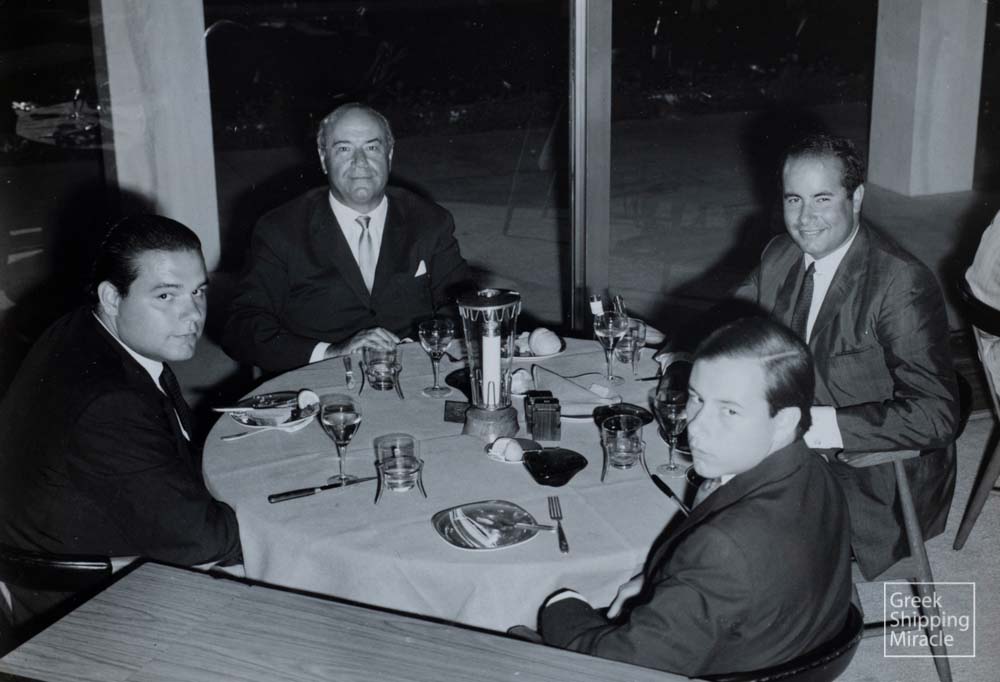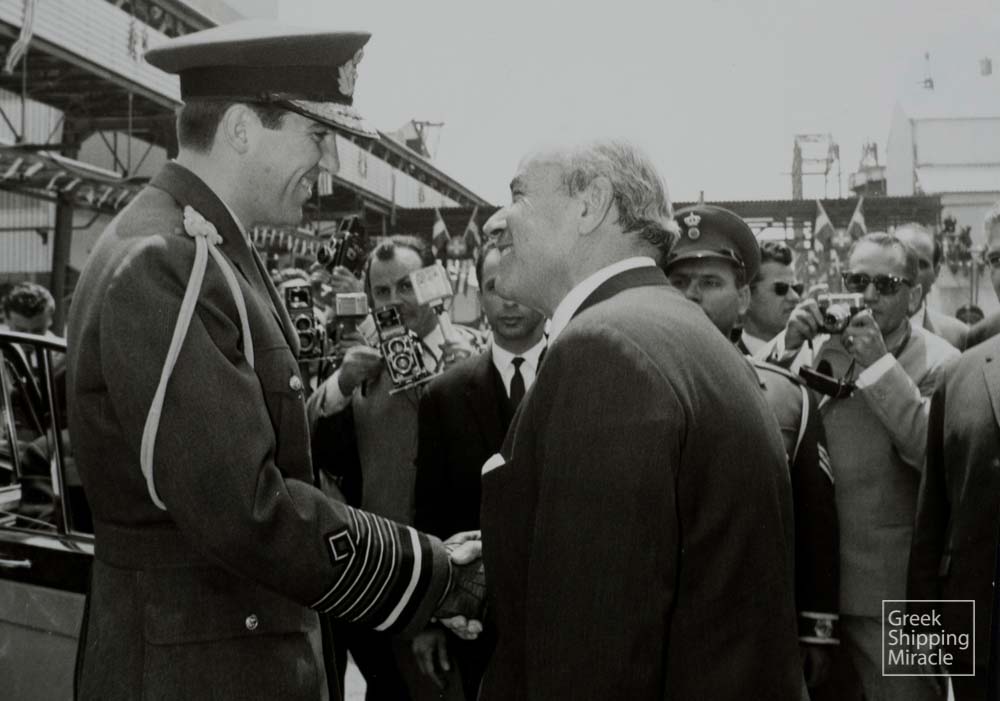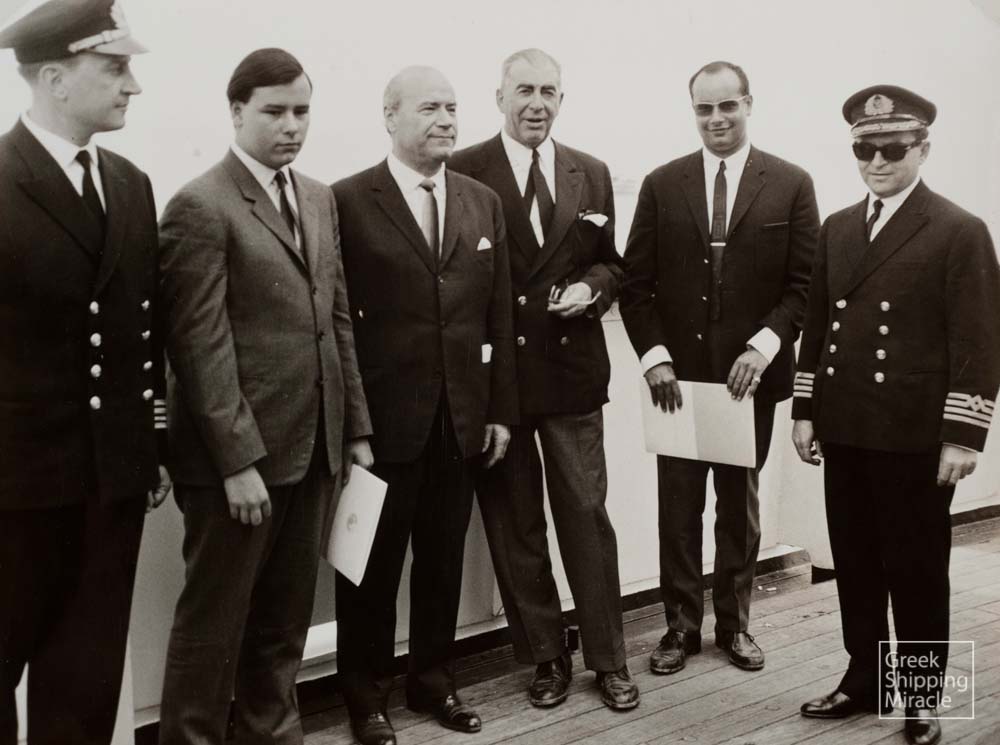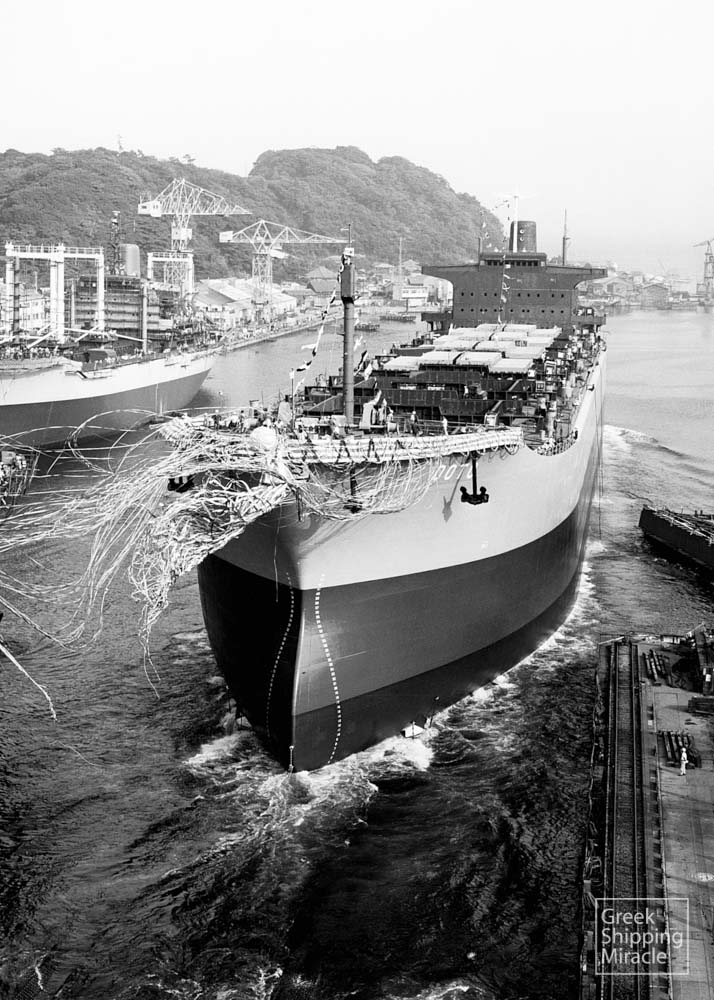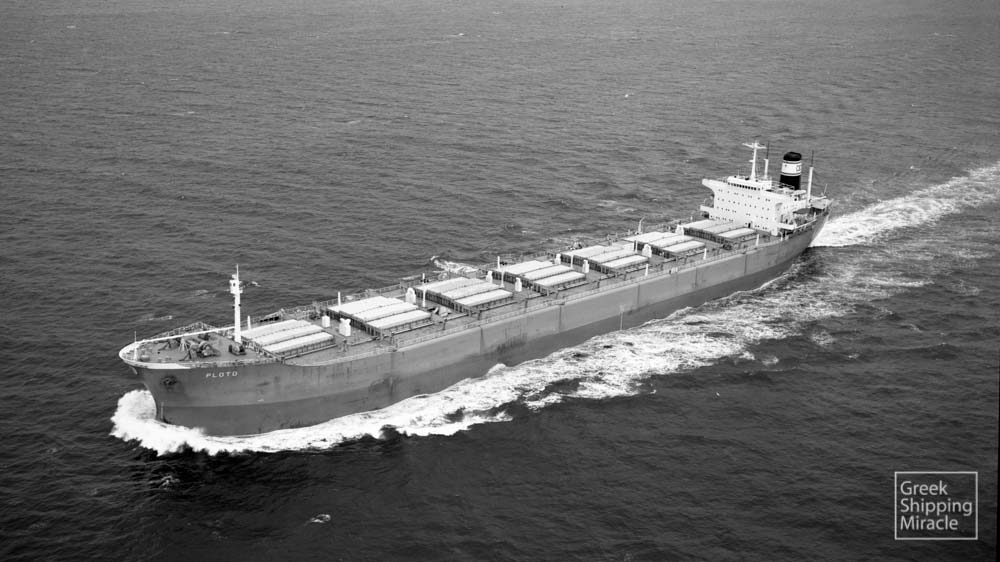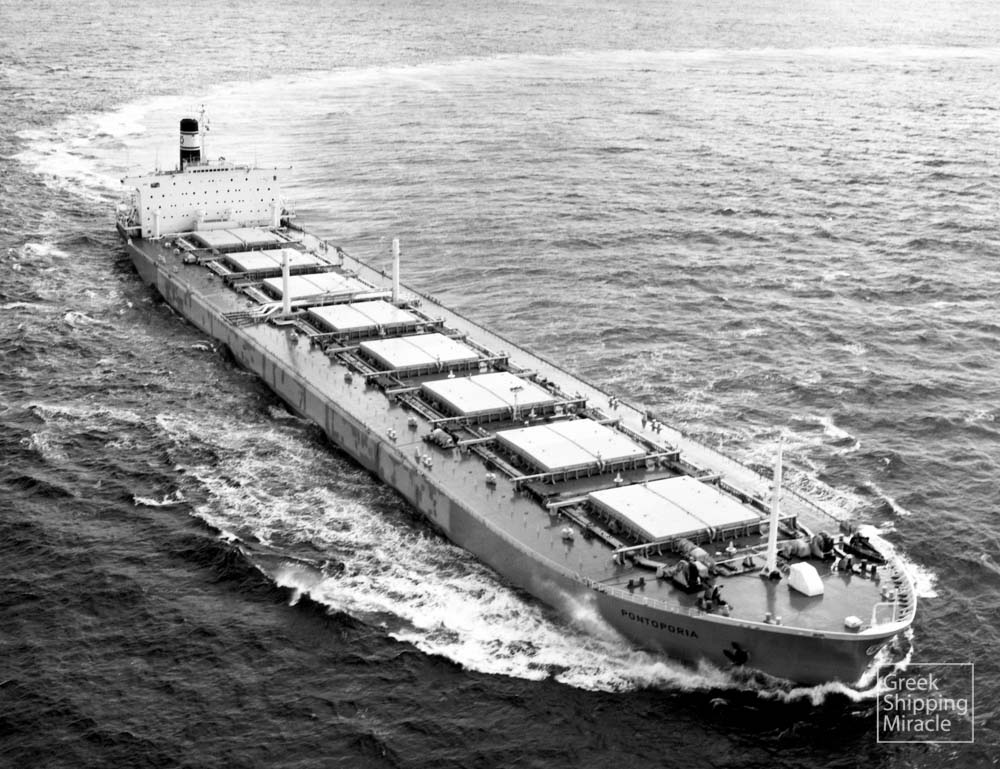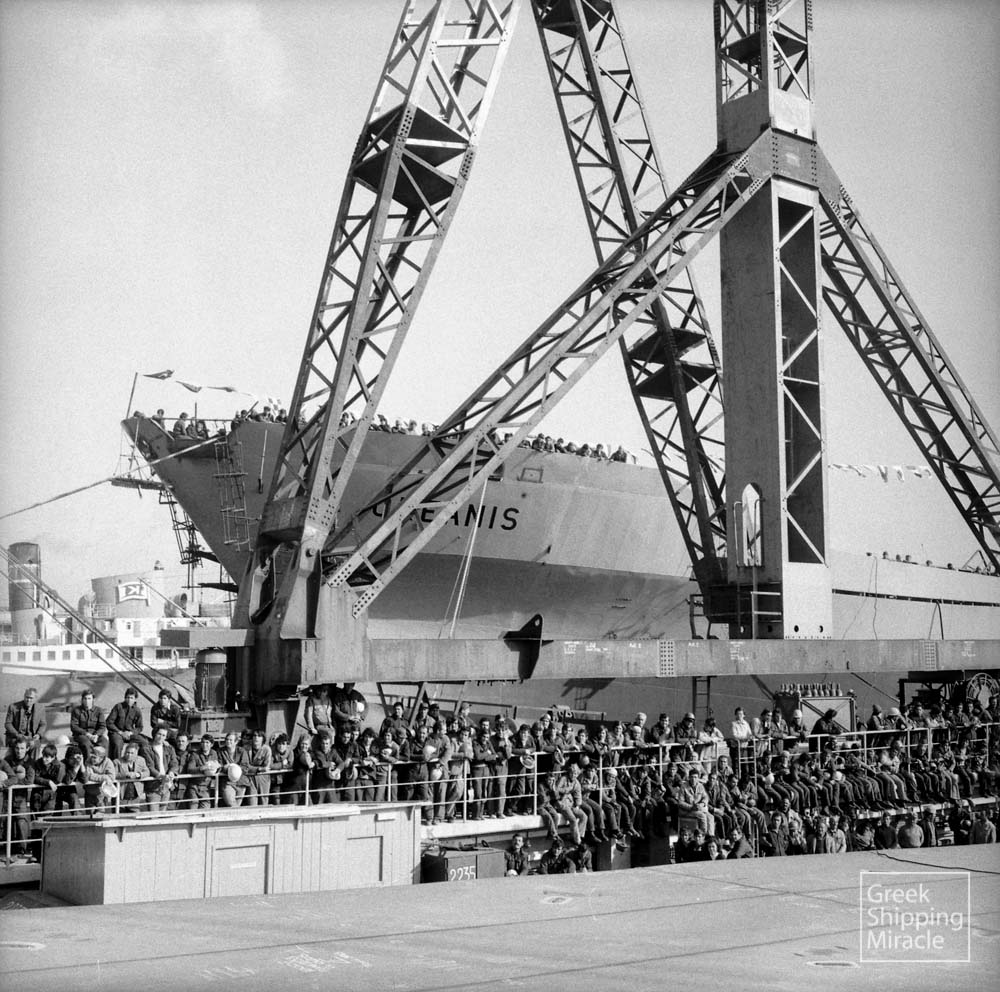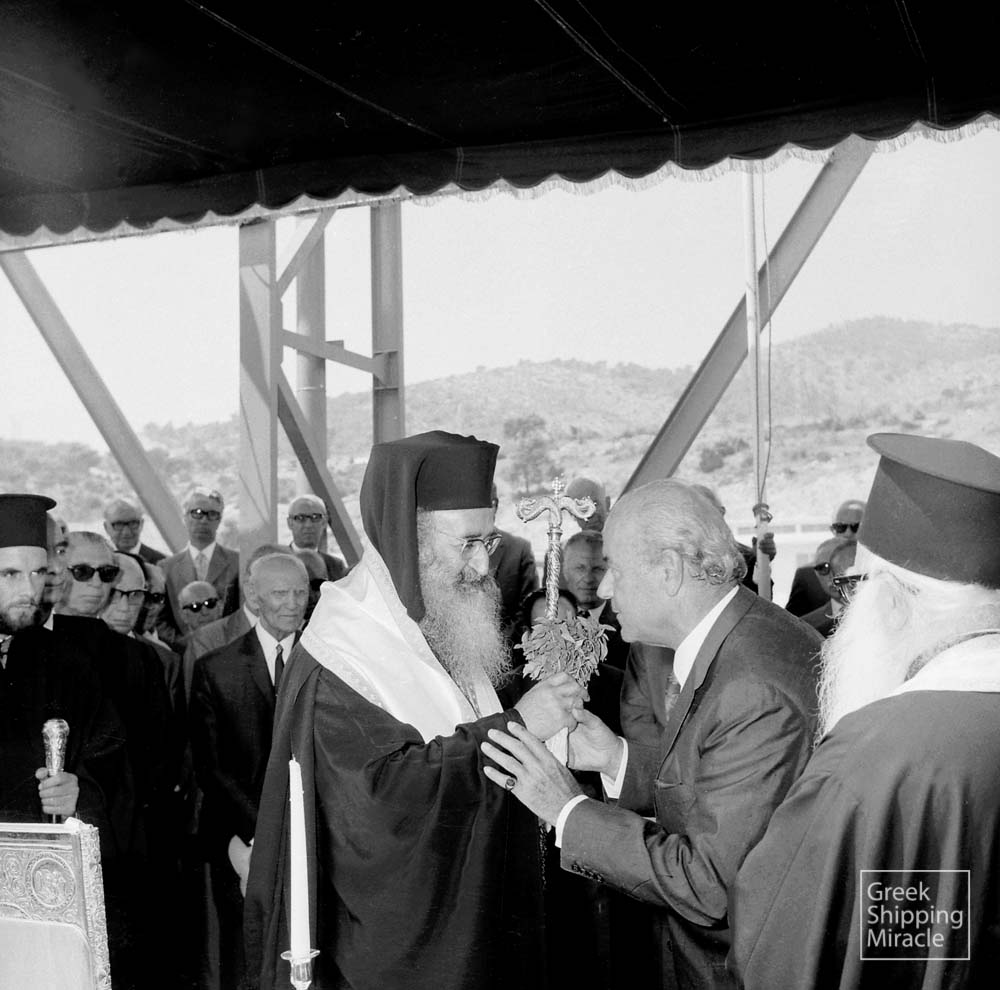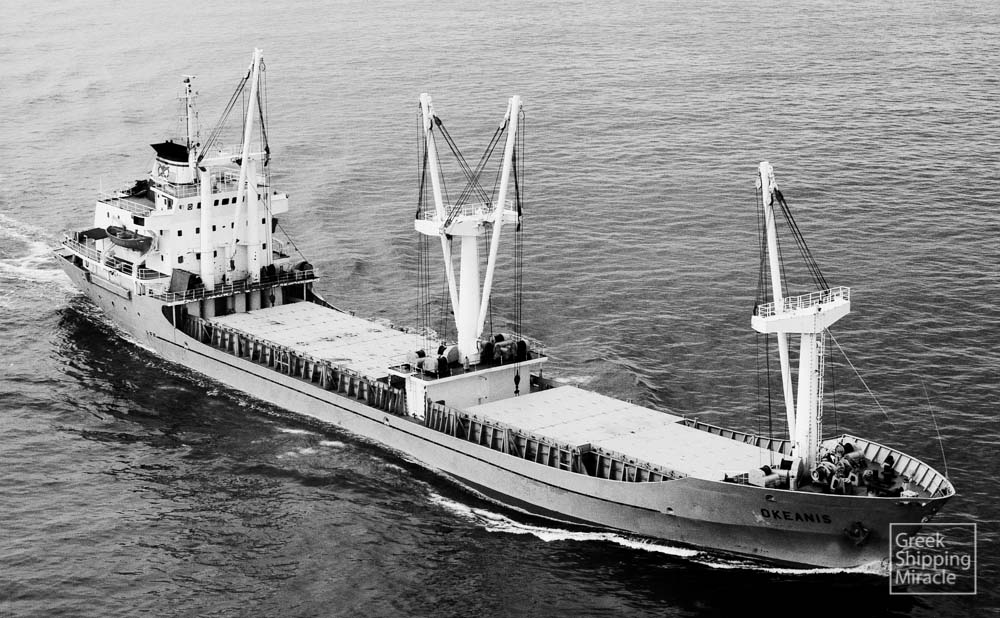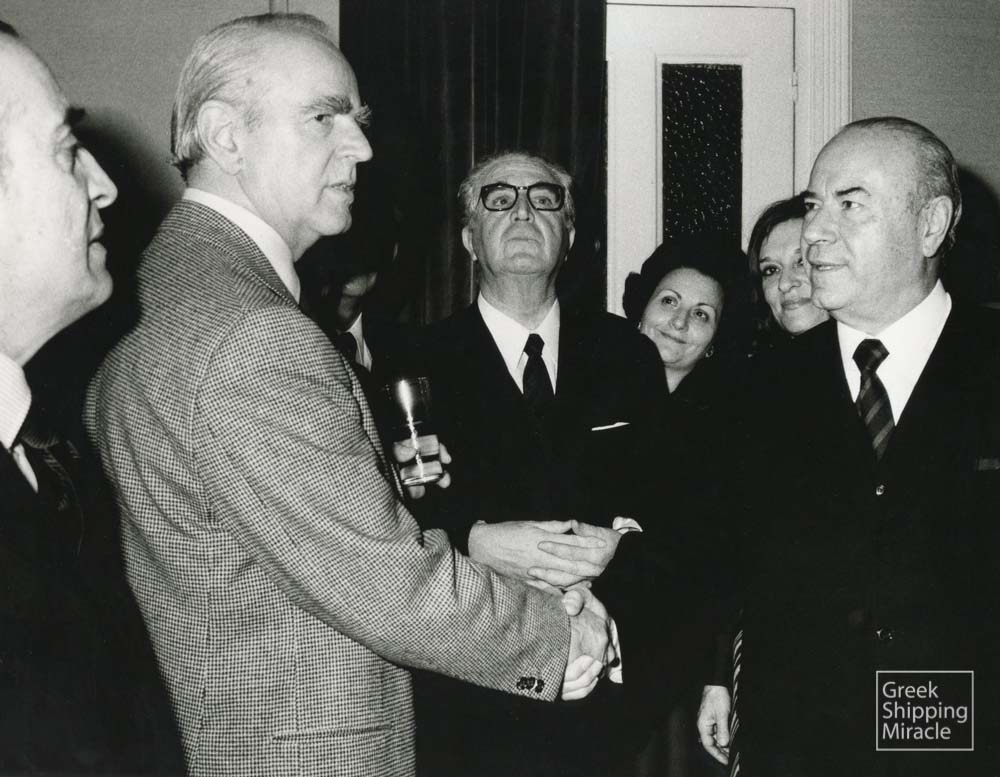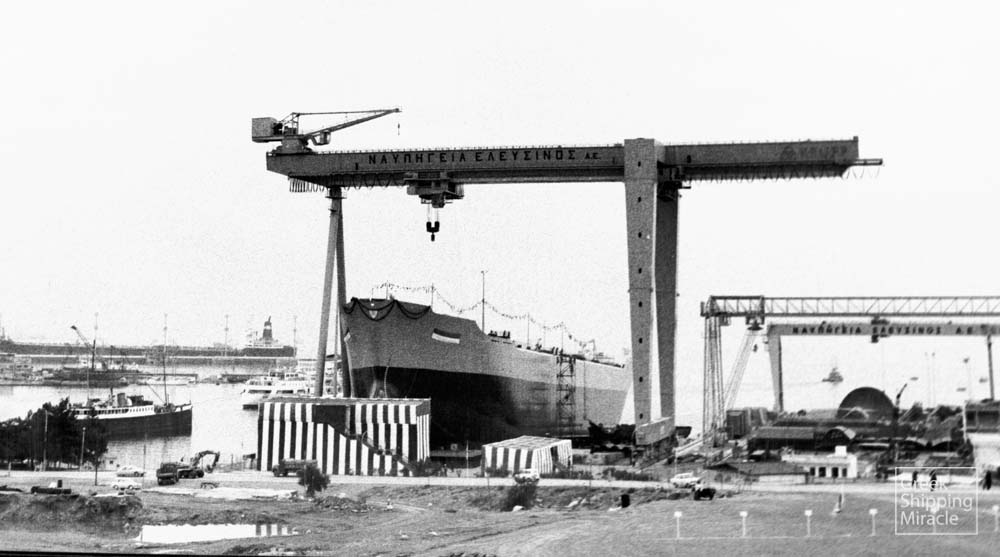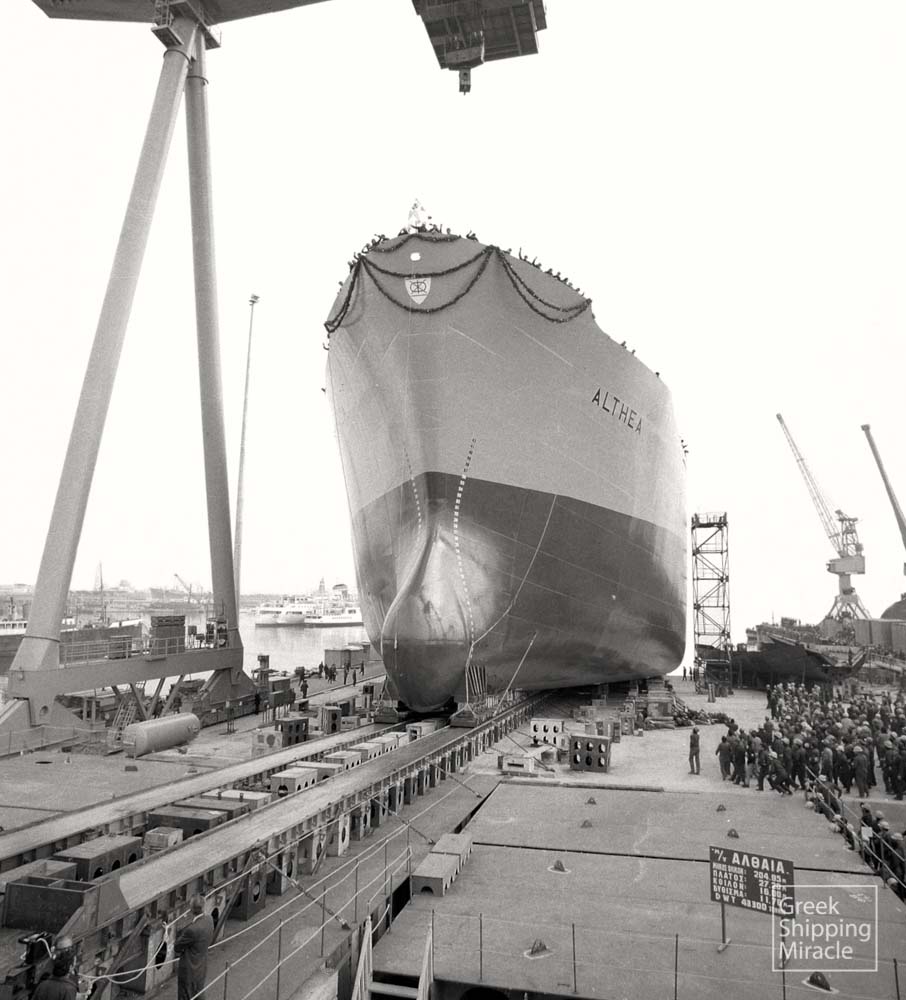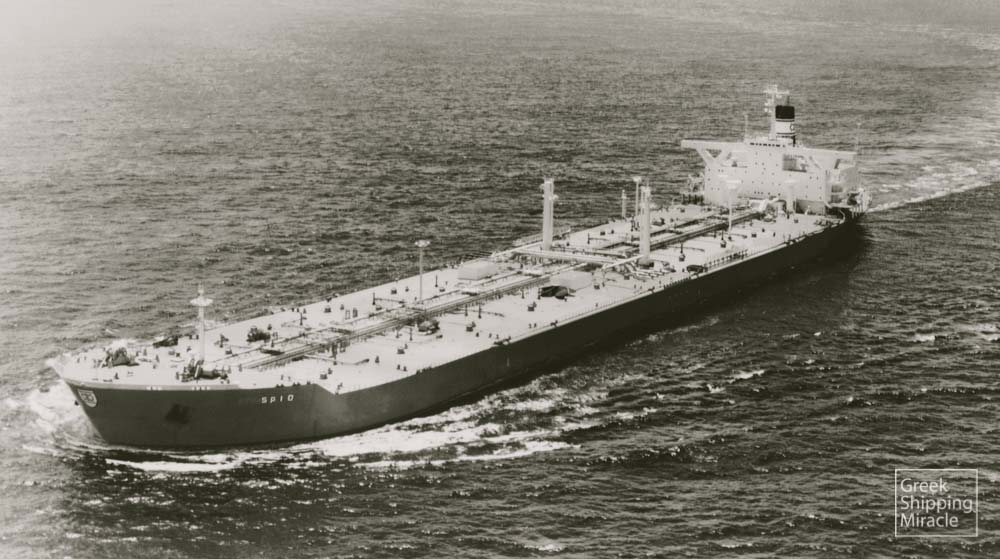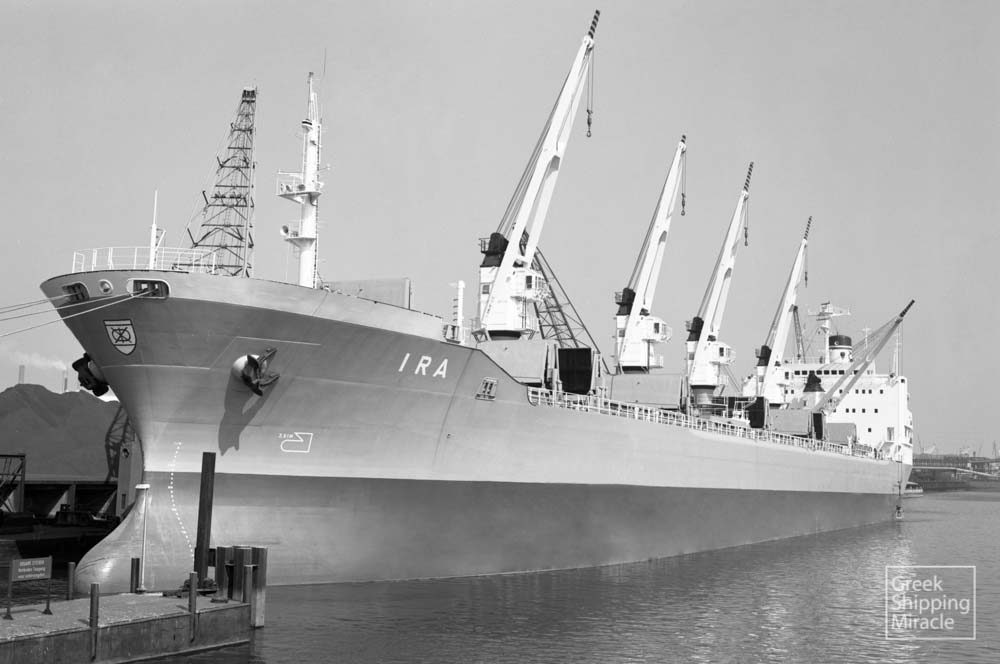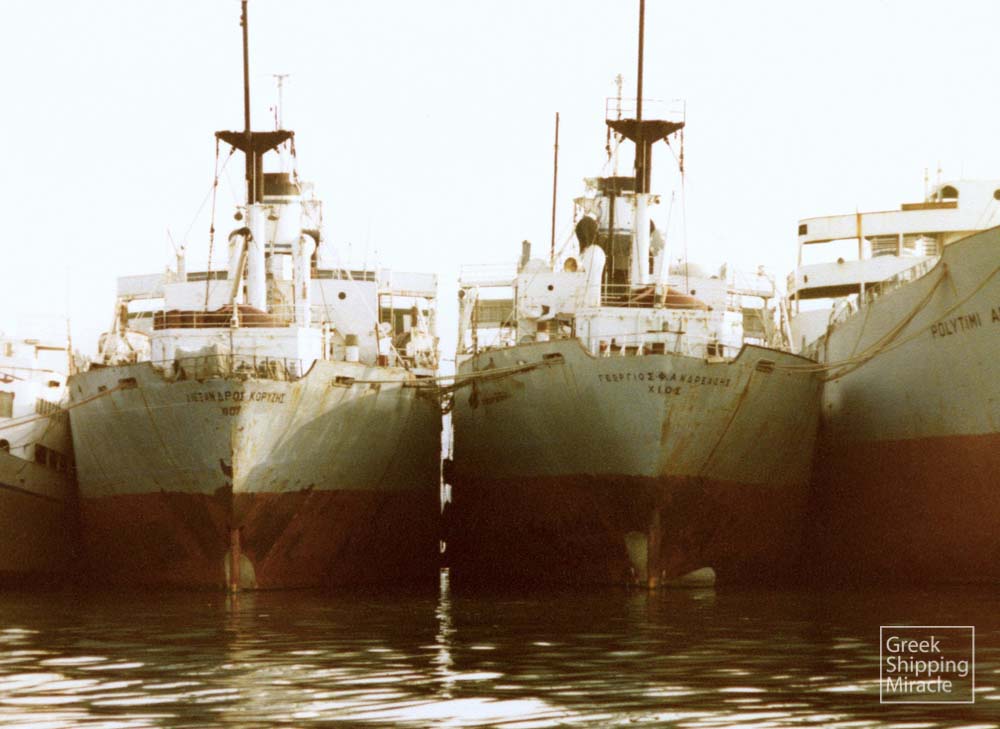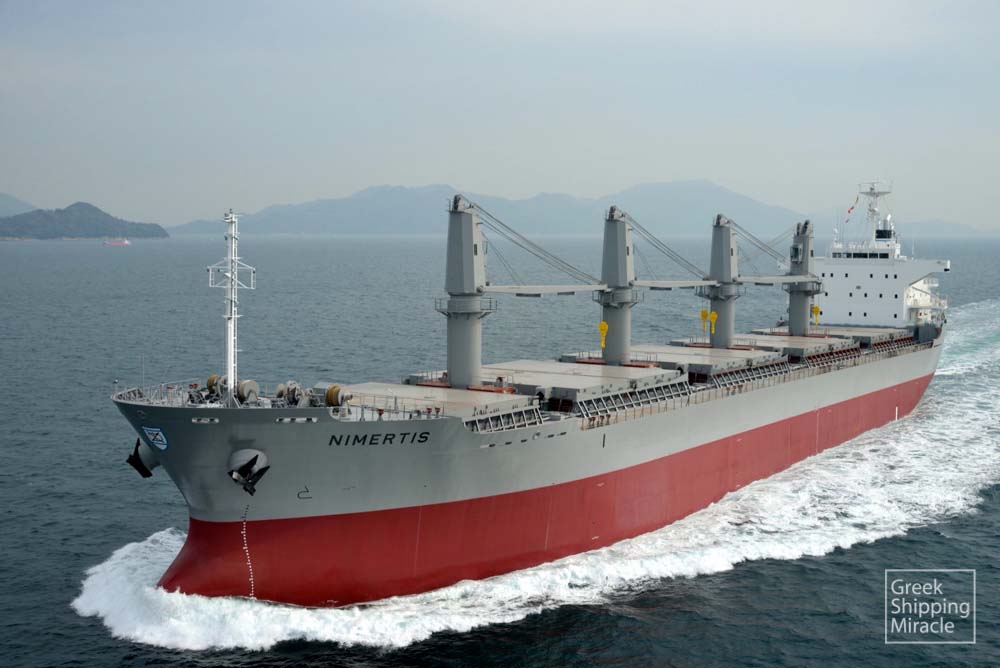STRATIS G. ANDREADIS (1905-1989)
At that time, his father already had a career in steamships following the long family tradition in sailing ships. Stratis G. Andreadis grew up and attended primary school in Vrontados. From a young age he lived through significant changes in the country and especially in Chios, which was taking its first steps in independence following its liberation from the Turks in 1912, under whose rule it had been for almost five centuries.
Following a brilliant performance in school, Stratis G. Andreadis enrolled in the Law School of Athens University obtaining his degree in 1925. His aptitude in jurisprudence resulted in an impressive career in the Greek domain, and he later continued his studies at the University of Paris School of Law and Political Sciences from where he graduated in 1931.
Following his qualification as a lawyer in 1927 his career developed in a spectacular manner. In 1932, he became a prefect of the Institute of Comparative Law and of the Center of Studies on the French Revolution in the University of Paris (Diplomes d’ Études Supérieures d’ Économie Politique et de Droit Public). In 1934 he was appointed as a lawyer by the Supreme Court. In addition to his activities as a lawyer during the 1930s and until the outbreak of WWII, Stratis G. Andreadis was elected as Professor of Administrative Law in the University of Thessaloniki in 1939 and later in the same year as Professor of the same chair in the Athens University of Economics and Business – where he was later elected and served as Chancellor for seven terms between 1943 and 1968. Another important milestone in his career was his election as an ambassador of Chios in the National Assembly of 1935. His academic status was further enhanced with the writing of a significant number of books and scientific publications in both Greek and French, and from the time of his election as a university Professor, the word ‘Professor’ always prefixed any public reference to his name.
In July 1939, he married Irene (Rena) Koryzis, with whom he had three sons, George born in 1941, Alexander born in 1944 and Petros born in 1949. His father-in-law was Alexandros Koryzis, Governor of the National Bank of Greece who was appointed Prime Minister of Greece by King George II following the sudden death of Ioannis Metaxas on January 29, 1941. Unfortunately, Koryzis gave an end to his life on April 18, 1941, a few days before German troops occupied Athens.
The outbreak of the War and the loss of the family’s only ship, as well as the passing away of Georgios F. Andreadis in 1945, prompted Stratis G. Andreadis to become actively involved in shipping after the end of the War and to continue the rich legacy of his father in this field. Consequently, when the US Government decided to sell part of its surplus WWII-built tonnage to foreign interests, and specifically the Liberty-type ships, Andreadis showed keen interest. He was actually the one who on December 13, 1946 took delivery of the first ship of that type out of a total of 98 sold on mass to Greek shipowners. The ship, in which his brother Captain Spyros G. Andreadis was also a partner, was renamed after his late father GEORGIOS F. ANDREADIS. Following this on February 7, 1947, a second vessel of this type was acquired and renamed after his late father-in-law ALEXANDROS KORYZIS. Both ships were placed under the Greek flag.
A few months later, Stratis G. Andreadis added two more cargo ships to his fleet, the 1920s-built US flagged STEEL ENGINEER and MOBILE CITY, which were renamed RENA – after his wife – and DIONI respectively, and were both placed under the Panamanian flag. On January 6, 1948, he further expanded his fleet, this time in the tanker sector, acquiring the first out of seven T2-type tankers sold by the US Government to Greek owners. The 1943-built ship was placed under the Greek flag and was renamed after his mother POLYTIMI ANDREADIS. It was also at this time, in April 1945 that he assumed the management of the Athens-Piraeus Electric Railways together with Nicolaos A. Vlangalis.
It did not take long for his personality to shine in the Greek business arena. His substantial academic schooling and the important role he played in the wider educational system of the country coupled with his family’s long-standing presence in the shipping industry, and the bold initiatives he took in this field during the early post-war years, brought him to the front line of a leading group of shipowners that undertook the reorganization of the Union of Greek Shipowners (UGS) in 1950.
Specifically, in March 1950, the Board of Directors of the UGS, having exhausted their efforts to liaise with the state in order to address crucial matters concerning the shipping industry, announced the termination of its operations and the winding up of its activities. At this critical moment, several personalities, from the worlds of both politics and shipping, decided to cooperate in a decisive and constructive way to deal with a situation that would ultimately have caused a lot of damage. Among them was Stratis G. Andreadis, who a few weeks later assumed the role as vice president in a new administration of the UGS headed by the 84-year-old Nikolaos Lykiardopulo – a traditional and well-respected personality within the industry. From that time onwards, and over the next 25 years, Professor Stratis G. Andreadis was in essence the leading figure of the time honored association.
Professor Stratis G. Andreadis also played a dominant role in the Greek economy, which was struggling to rebuild following one of the most traumatic periods of its history, the destructive years of the 1940s. The main targets set for the reconstruction of the devastated country was to establish appropriate infrastructure in the sectors of agriculture, industry and services over the next two decades.
The outstanding milestone in Andreadis’ career was the acquisition of the majority shareholding of the Commercial Bank of Greece from the successors of its founder Grigorios Empedocles, investing to this end significant funds from abroad. He subsequently pursued an aggressive expansion policy and developed a multidimensional group of companies that rapidly became the largest private sector employer in the country.
The evolution of the Stratis G. Andreadis’ shipping group was equally impressive. In 1952 an office, Andreadis (UK) Ltd., was established in London to undertake the agency of the family fleet, which had since the pre-war years been entrusted to the S. G. Livanos office in the British capital. This office oversaw the large high quality fleet that was created thanks to a newbuilding program in the U.K. and Japan.
The first newbuilding of the Andreadis Group, the Liberian-flag tanker NIMERTIS of 17,610 dwt, was delivered in October 1952 by Scott’s Shipbuilding & Engineering Co. Ltd. in Greenock, Scotland. A year later, in September 1953, a sister ship was delivered, the LADY DOROTHY. The following years were even more prolific. In December 1955, Mitsubishi Heavy Industries Reorganised Ltd. in Kobe delivered the first Japanese-built ship to Andreadis Group, the 14,500 dwt general cargo ship GALINI followed by a sister ship, the GALATIA, in April 1956. In December of the same year, the 40,400 dwt tanker KYMO was delivered by Mitsubishi Heavy Industries in Yokohama while two additional sister ships, the CRINIS and the NEFELI were delivered in February 1957 and in July 1958 respectively. The Andreadis’ fleet further expanded with the delivery of another two tankers in 1957, the 18,000 dwt MELITI, built by Wm. Hamilton & Co. Ltd. in Glasgow, and the 33,950 dwt AELLO, built by Hitachi Zosen in Innoshima. The 14,450 dwt cargo ship GLAFKI was also delivered in December 1957 from the same Japanese shipyards, but she was sold following her first voyage to British interests. The delivery of these ships, which all joined the fast rising Liberian registry, helped the Andreadis Group to establish itself in the arena of international oil transportation, at the very time that “black gold” was replacing coal as the world’s main source of energy.
With Stratis G. Andreadis at the forefront, the UGS began to organize itself more emphatically in order to face the numerous problems that had arisen due to an almost complete lack of centralized state maritime policy. The situation improved when Alexander Papagos came into power in November 1952, ending an eight-year period of political turmoil during which no less than 26 consecutive governments were sworn in. The Papagos administration adopted, in late 1953, a series of important reforms in order to address issues regarding the country’s economic development. Amongst these was the revival of the national ship registry. The government’s initiatives and efforts were gradually endorsed by the shipping community and a few years later, during a majestic ceremony in Piraeus in October 1960, King Paul handed over the Greek flag to Stavros Livanos, the owner of the 1000th ship that had been registered in Greece since the end of WWII.
In the same year, Stratis G. Andreadis was elected President of the UGS, in the midst of a serious recession that had been affecting international shipping since 1957, and having already expanded his business activities in Greece at a dramatic pace. In addition to the Commercial Bank of Greece, he had also since 1952 taken under his control the “Phoenix” insurance company and the Greek Electric Railways, while in 1957 he acquired from Sir Charles Hambro the Ionian Bank, which subsequently operated as the Ionian and Popular Bank of Greece. Two more banking institutions, the Piraeus Bank and the Attica Bank were acquired by his Group in 1962 and 1964 respectively. Other initiatives of his in the banking sector included the acquisition of the Commercial Bank of the Near East in London as well as the foundation in 1963 of the Investment Bank of Greece, which was at that time a pioneering venture in the Greek economy and included the participation of several significant foreign banks.
Stratis G. Andreadis further expanded his activities in other sectors of the economy establishing important industrial facilities, such as a fertilizer factory in Nea Karvali, Kavala in 1962, the Greek Industry of Juices and Cans in Corinth in 1963 and the Greek industry of Sacks and Plastic Materials, a joint venture with the “Phoenix” insurance company. He also controlled the insurance companies “Ionian” and “General Insurance of Greece”.
Among other important enterprises, Andreadis was also responsible for the construction of the Athens Hilton. Its completion in 1963 significantly upgraded an entire area in the center of the Greek capital. Another notable initiative of his was the foundation of the Elefsis Shipyards in 1962, which achieved considerable growth over the subsequent years and led to the construction of ocean-going ships in the early 1970s.
Stratis G. Andreadis continued investing in newbuildings in the early 1960s, during a period in which the world fleet experienced rapid growth with a new type of ship, the bulk carrier. In February 1962, Scott’s Shipbuilding & Engineering in Glasgow, UK, delivered to Andreadis’ interests the first newly-built bulk carrier, the 28,480 dwt KAPETAN GEORGIS, the first bulk carrier operated by the family. A second ship of this type, the 22,160 dwt GLAFKI, joined the Andreadis’ fleet in March 1964 built by Chantiers de l’ Atlantique in St. Nazaire, France. Another two bulk carriers, the PLOTO and the DOTO, 62,300 dwt each, were built by Uraga Heavy Industries Ltd. in Yokosuka, Japan, and entered the Andreadis’ fleet in August and November 1968 respectively. Concurrently with the establishment of a modern bulk carrier fleet, Stratis G. Andreadis steadily enhanced his tanker fleet. To this end he took delivery of two newly-built sister ships of 68,000 dwt each, the EVDORI in November 1964 and the EFYRA in May 1965.
In August 1964, the First Maritime Conference was successfully held in Athens in the presence of King Constantine and all the political leaders of the country led by Prime Minister George Papandreou. During the Conference, the President of the UGS Stratis G. Andreadis and the President of the Greek Shipping Co-operation Committee John C. Carras together with other distinguished members of the shipping community delivered important speeches outlining all the major maritime issues of the time. Among the issues discussed was the need for the establishment of a suitable mechanism capable of effectively marrying the international shipping activity of the Greeks with the Greek economy. Although the government had already been laying the foundations for achieving this national objective, the extremely turbulent political period that followed in the next year and ultimately led to the establishment of a dictatorship in April 1967 prevented such plans from materializing.
It was only in 1968 when the regime of Colonel George Papadopoulos which regarded the shipping industry as one of the principal pillars that would give support to the economic growth of the country, took legislative measures in line with what had been discussed during the previous government of George Papandreou and had been handled by its subminister of Coordination Andreas G. Papandreou. The revived institutional framework allowed the establishment of shipping offices in Greece, leading to the recognition of Piraeus as a major international shipping center with a multidimensional and to this day increasingly important contribution to the national economy. Stratis G. Andreadis, being a dominant figure in the Greek banking system and at the head of many industrial and touristic enterprises – in addition to his undisputed role as leader of the Greek shipowners – was very much in the public eye throughout the dictatorial regime. The fall of the dictatorship, marked by the tragic events in Cyprus in July 1974, had a dramatic impact on his business enterprises in Greece. In late 1974, his 25-year service on the Board of UGS came to an end. Moreover, in 1975, following an action by the Konstantinos Karamanlis administration, he lost control of the cornerstone of his business enterprises, the Commercial Bank of Greece, resulting in the nationalization of all his business activities in the country.
Following this, Andreadis focused his activity on ocean-going shipping, a sector in which he and his family had achieved international distinction. He also maintained the control of the Commercial Bank of the Near East of London until the mid-1990s when its shares were transferred to the Alpha Bank Group. From the early 1970s, his fleet had already expanded with the addition of six newbuilding ships. Two sister vessels, the ore/oil carriers PASITHEA and PONTOPORIA, 152,950 dwt each, were built in 1971 by Hitachi Zosen in Innoshima, Japan. Two small cargo ships of 5,900 dwt each, the OKEANIS and the ΤITHIS, were delivered in March and September 1973 respectively by Elefsis Shipyards. Finally, two bulk carriers, the ΑLTHEA and the ΑΚΤΕΑ, 43,500 dwt each – the largest ships that have ever been built in Greece – were also delivered by Elefsis Shipyards in 1973 and 1974 respectively.
Another important entrepreneurial initiative that was undertaken by Stratis G. Andreadis in Greece, the establishment of a large oil refining plant at Megara – which had begun following a contract signed between his company STRAN and the Greek State on July 22, 1972 – was stopped unsolicitedly by the dictatorial regime on November 27, 1973 and was finally cancelled by Karamanlis administration in 1975. In relation to this investment and with the aim of further expanding his tanker fleet, Andreadis had placed an order at the Hitachi Zosen facility in Sakai for a large tanker of 283,860 dwt, which was launched as the STRAN SPIO in 1973. Following these developments however, the building of the ship was delayed and she was finally delivered to the owners as the SPIO in 1976.
Andreadis also had the intention of building a 500,000 dwt tanker in Japan, but its construction was cancelled due to the crisis and the order was replaced with bulk carriers. By the end of 1970s, Andreadis had taken delivery of two 60,250 dwt bulk carriers from Hitachi Zosen, the ΕVNIKI in 1977 and the EVLIMENI in 1979, and another two 26,000 dwt bulk carriers in 1979, the IRA and the ΙVI, and had sold the SPIO to French interests just before the onset of the crisis of the 1980s. An indication of the quality of the newbuilding ships joining the Andreadis fleet was that almost all of them remained under the management of the group for the entire duration of their lives.
Professor Stratis G. Andreadis was bestowed with many honours and decorations both in Greece and abroad. He was also named as lifetime Honourary President of the UGS, following his retirement, for the invaluable services he offered the Union and the shipping community as a whole, including the reconstruction of the new offices of the UGS at Metropolis Street in Athens in the early 1970s. He managed during his long business career to attain a significant amount of power and influence thanks to his creativity and multidimensional endeavors both in Greece and abroad. At his peak he seemed all powerful and almost invincible. However, his forced downfall in 1975 and the nationalization of his domestic businesses revealed the existence of a considerable number of people who opposed him with hostility. Nevertheless, looking back time has proven that his fall resulted in nothing more than opening the doors to massive state control in Greece with catastrophic results for investments and economic development as a whole in the country.
Resentful of the outcome of his business accomplishments, Stratis G. Andreadis endeavored until the end of his life to reverse the unfavourable state of affairs for his group, a fact that is eloquently illustrated in his introductory text of a booklet entitled “Yesterday, Today, Tomorrow”, published by his group in 1986 – during the crisis – which concludes:
“Based on fifty years of highly diversified experience, I am convinced that Statism is almost by definition opposed to every viable business initiative. This is why I am still hopeful that the present crisis will lead to a reconsideration of views and the recognition of the dominant role of private investments in economic development.
If my hopes become reality, I am both willing and ready to resume my business activity in Greece. I leave it to the readers of the pages that follow to judge, compare and decide whether this would be to the detriment or the benefit of the country, to which I have devoted a great deal of time and a great passion of creativity.”
Despite his willingness and his dedication, he lacked time. Three years later, on February 14, 1989, he passed away in Paris after a heart attack at the age of 84.
In the mid-1990s, the European Court of Human Rights, on hearing the case of the STRAN refinery, penalized the Greek government and awarded a large financial compensation package to his heirs.
